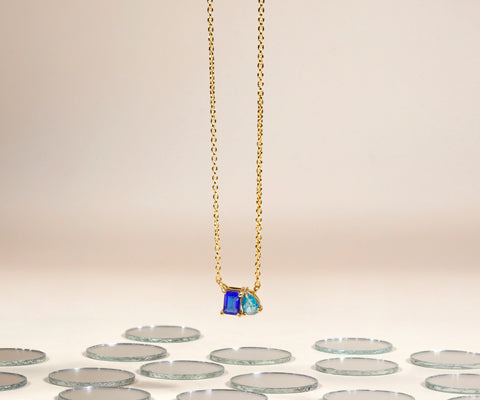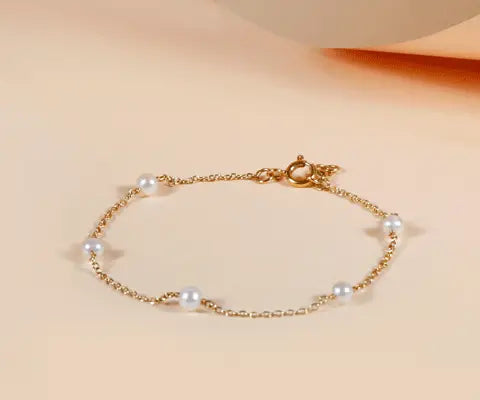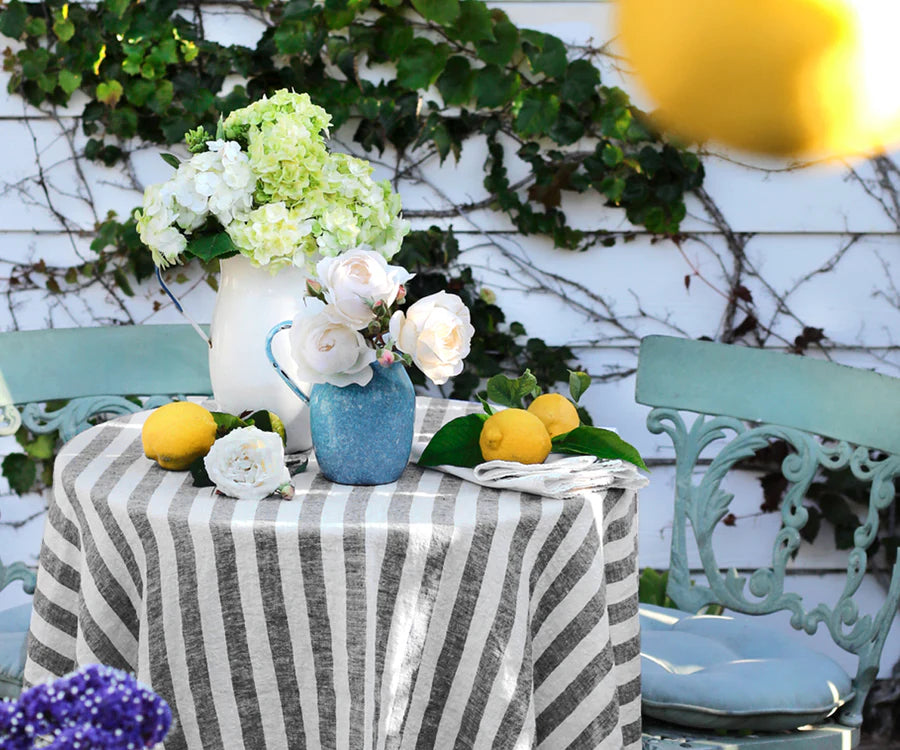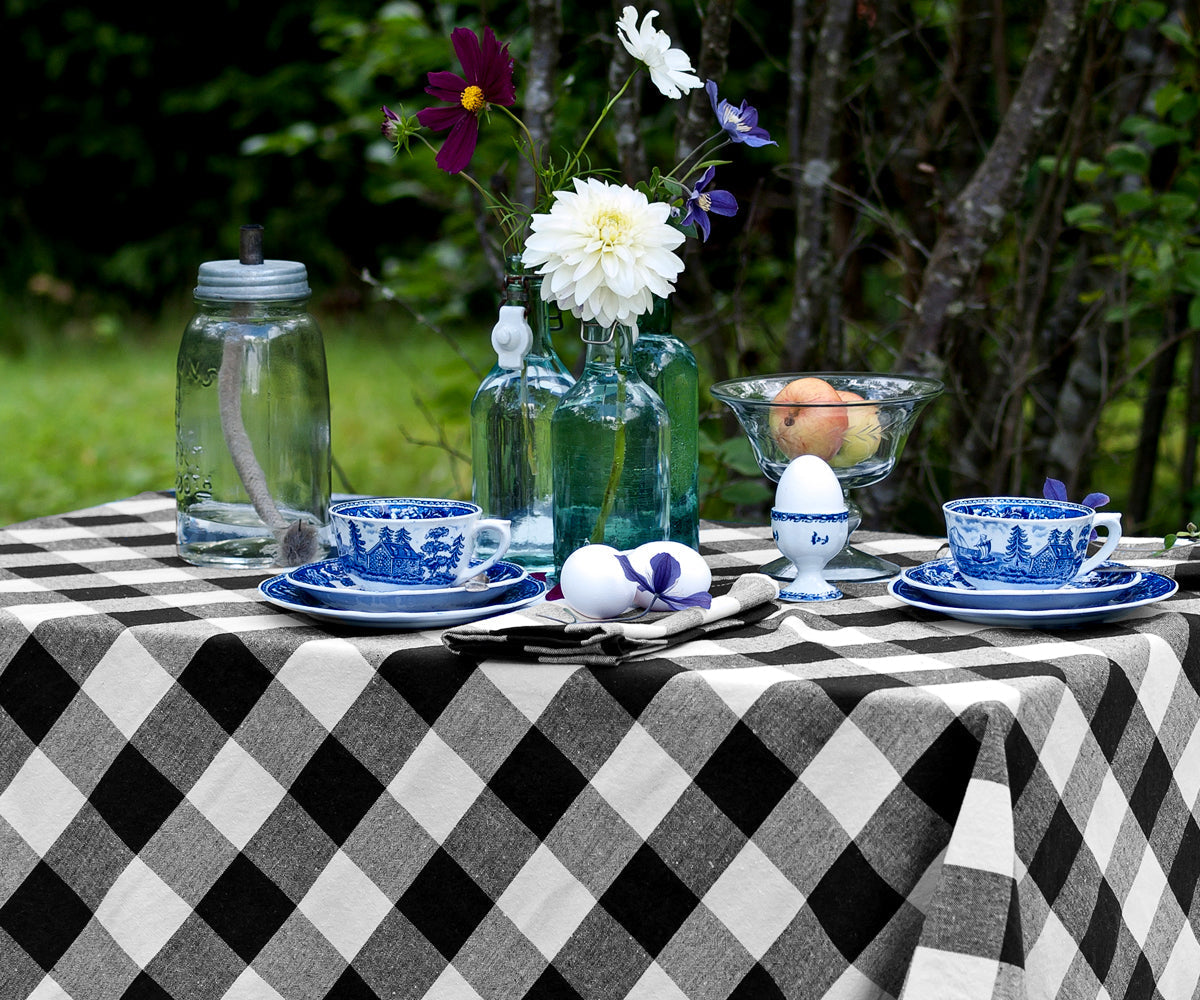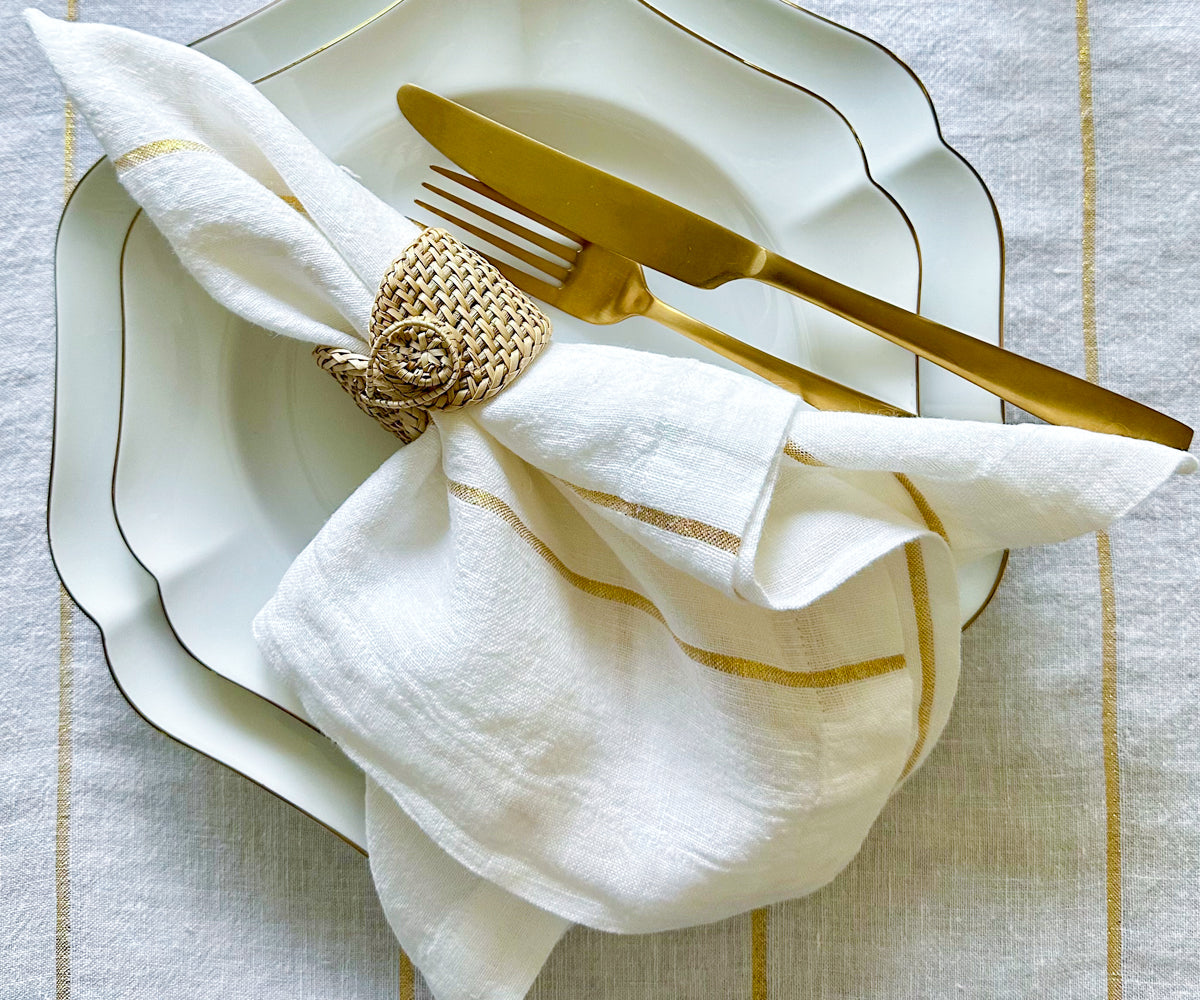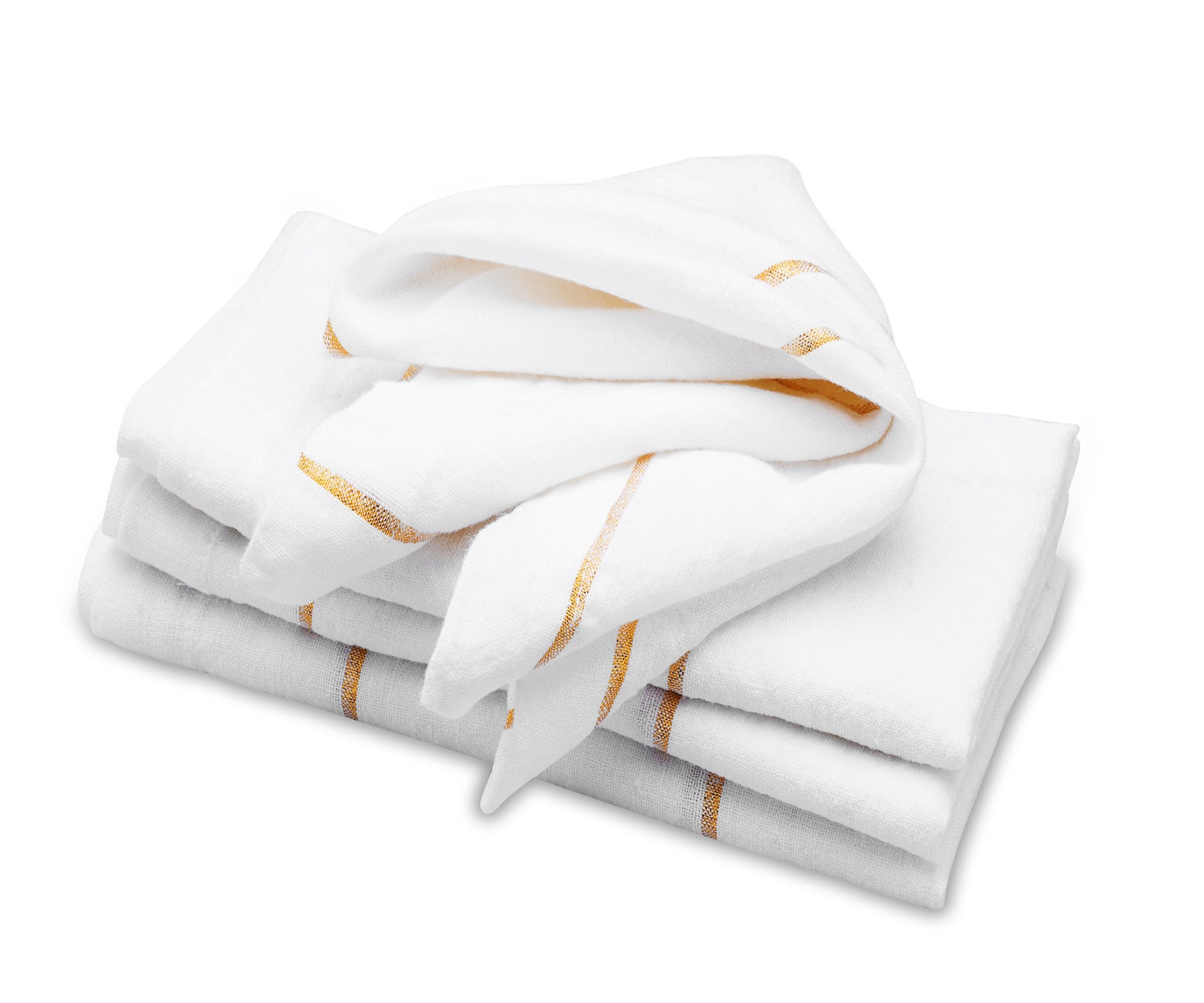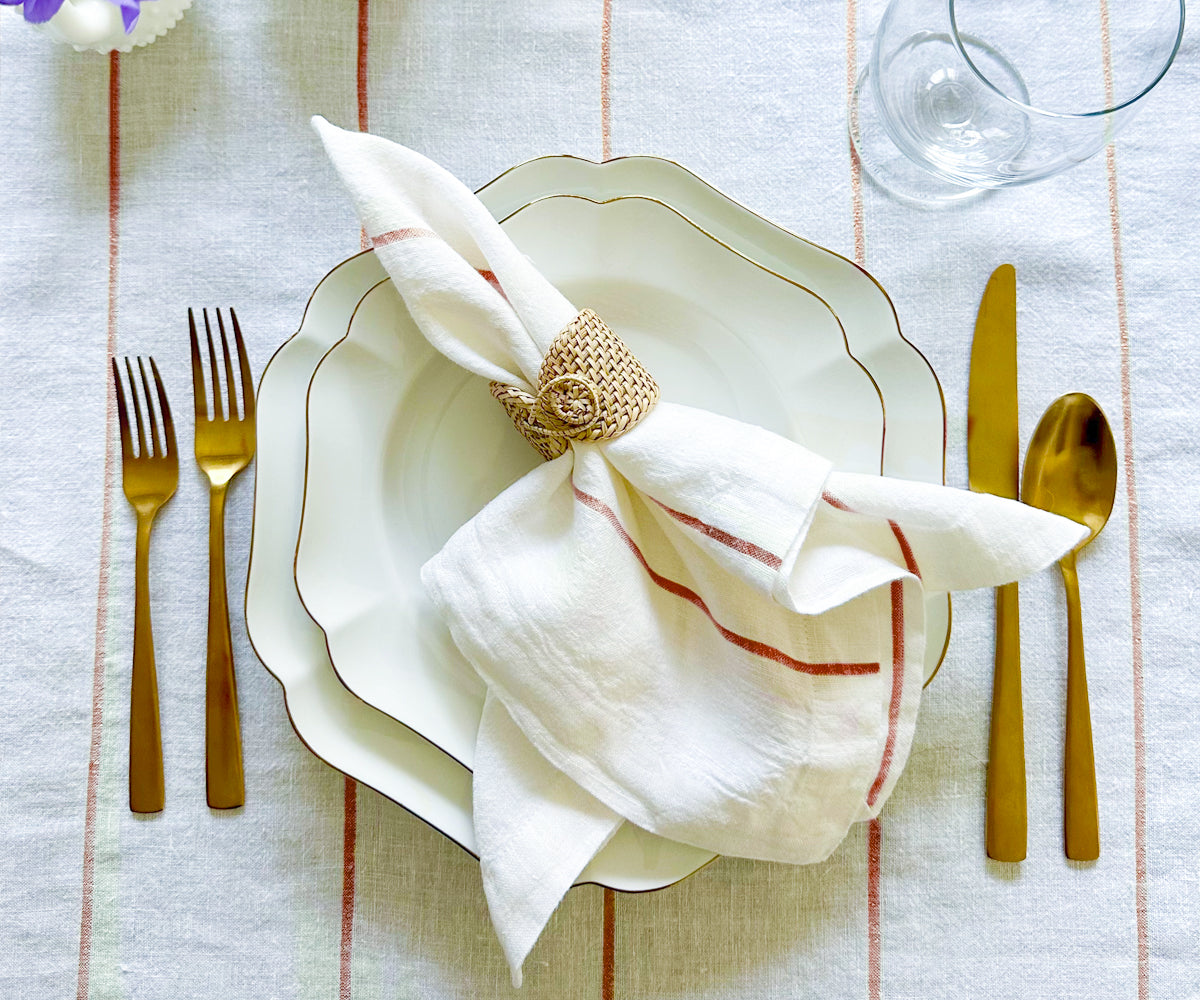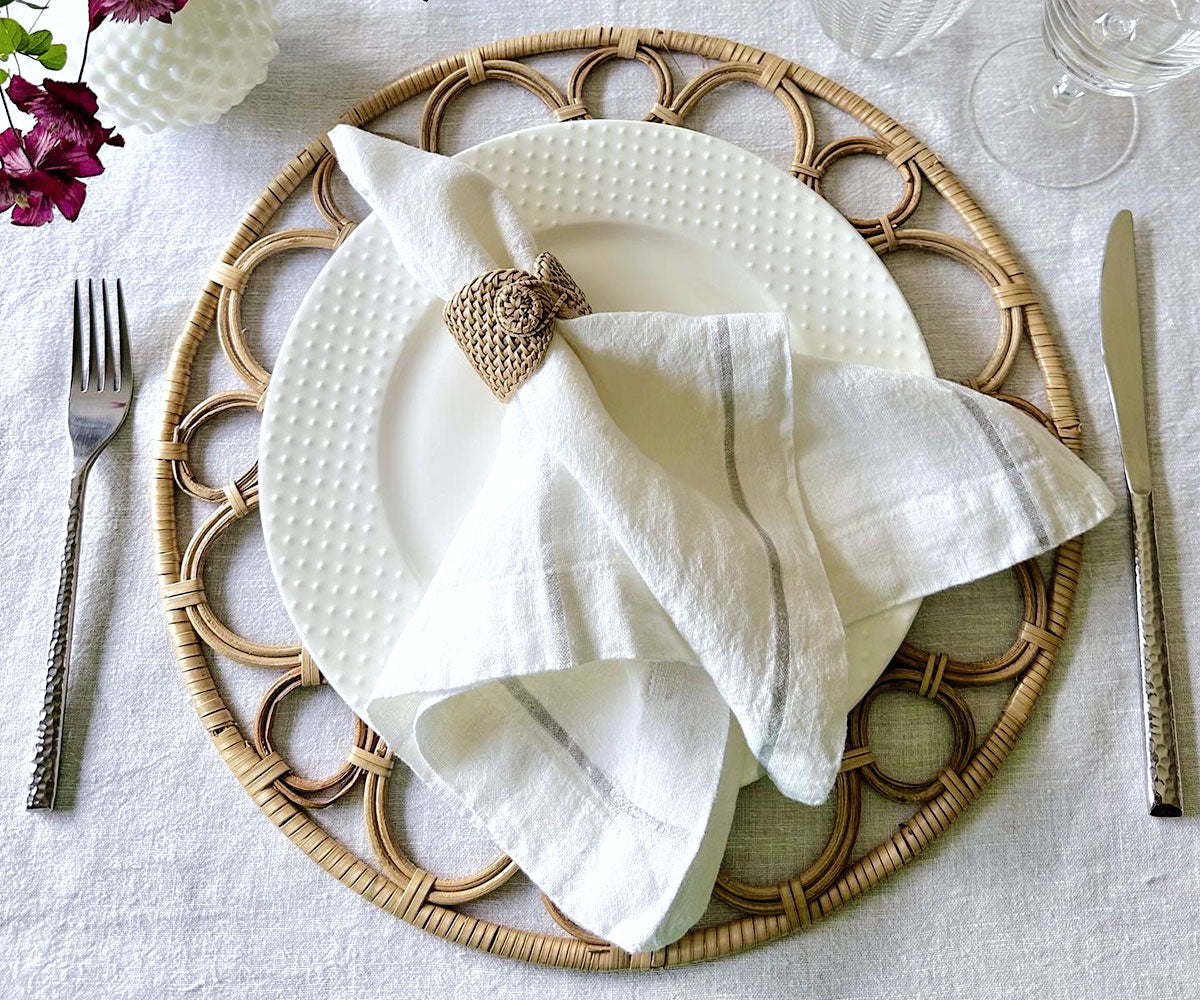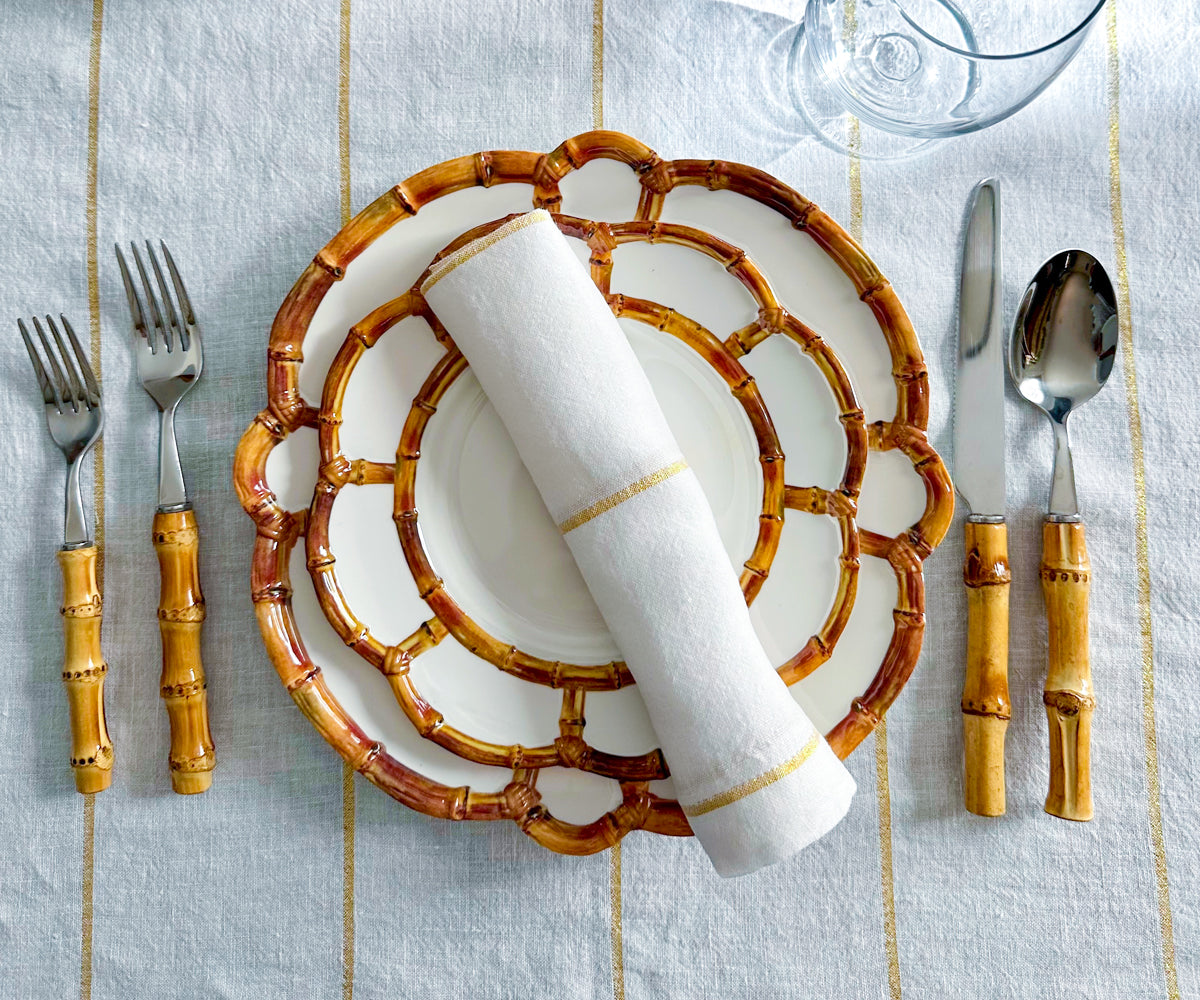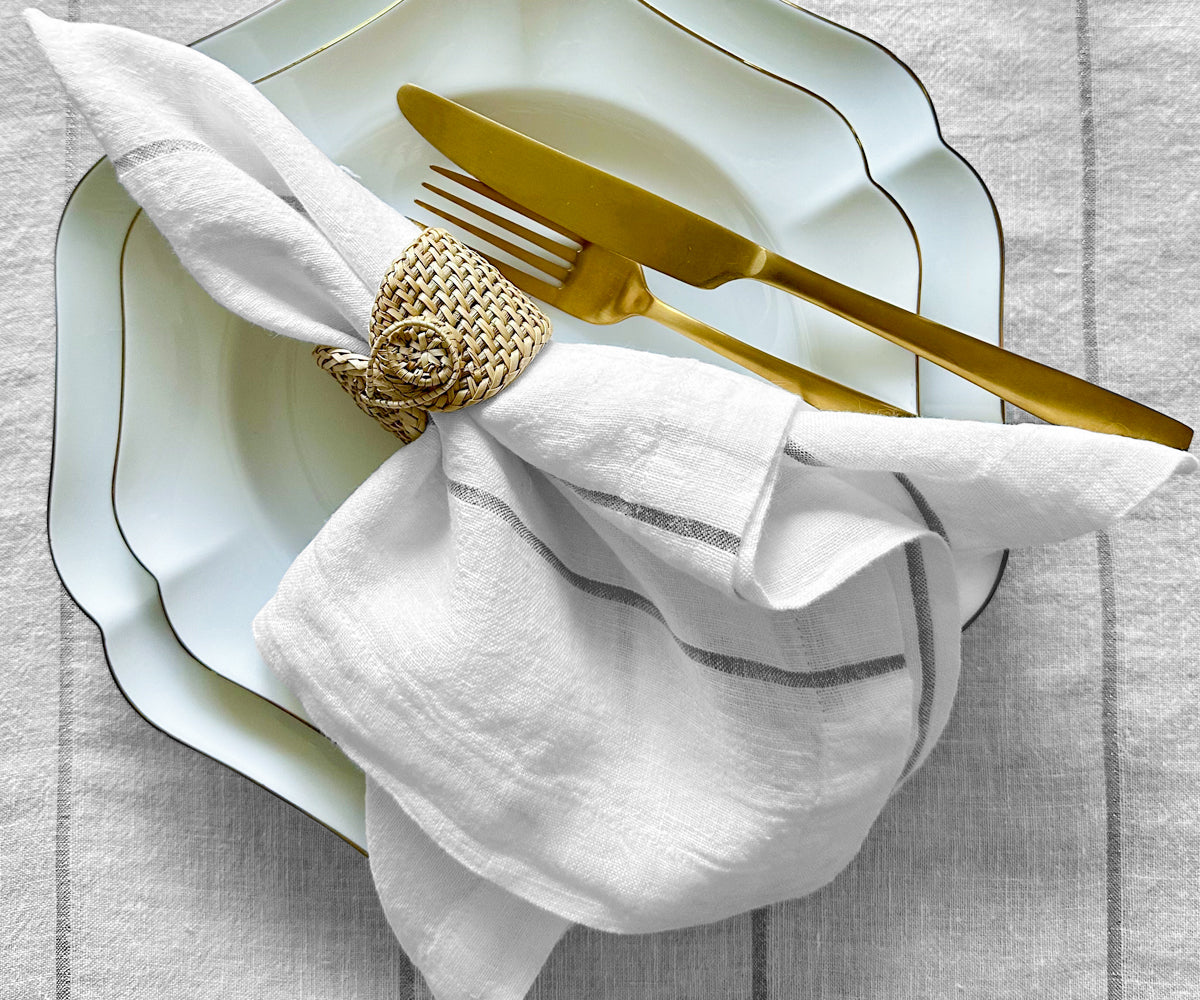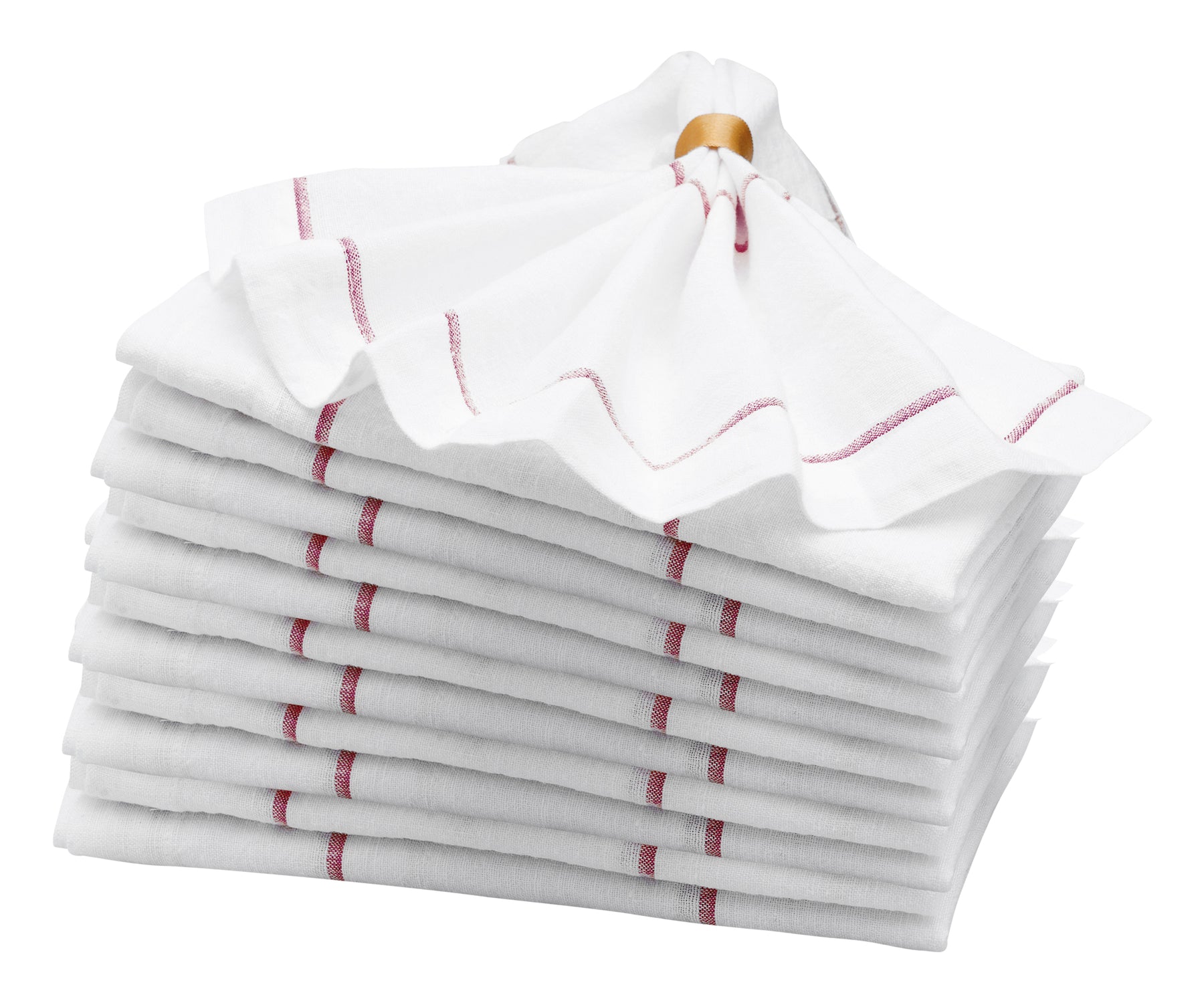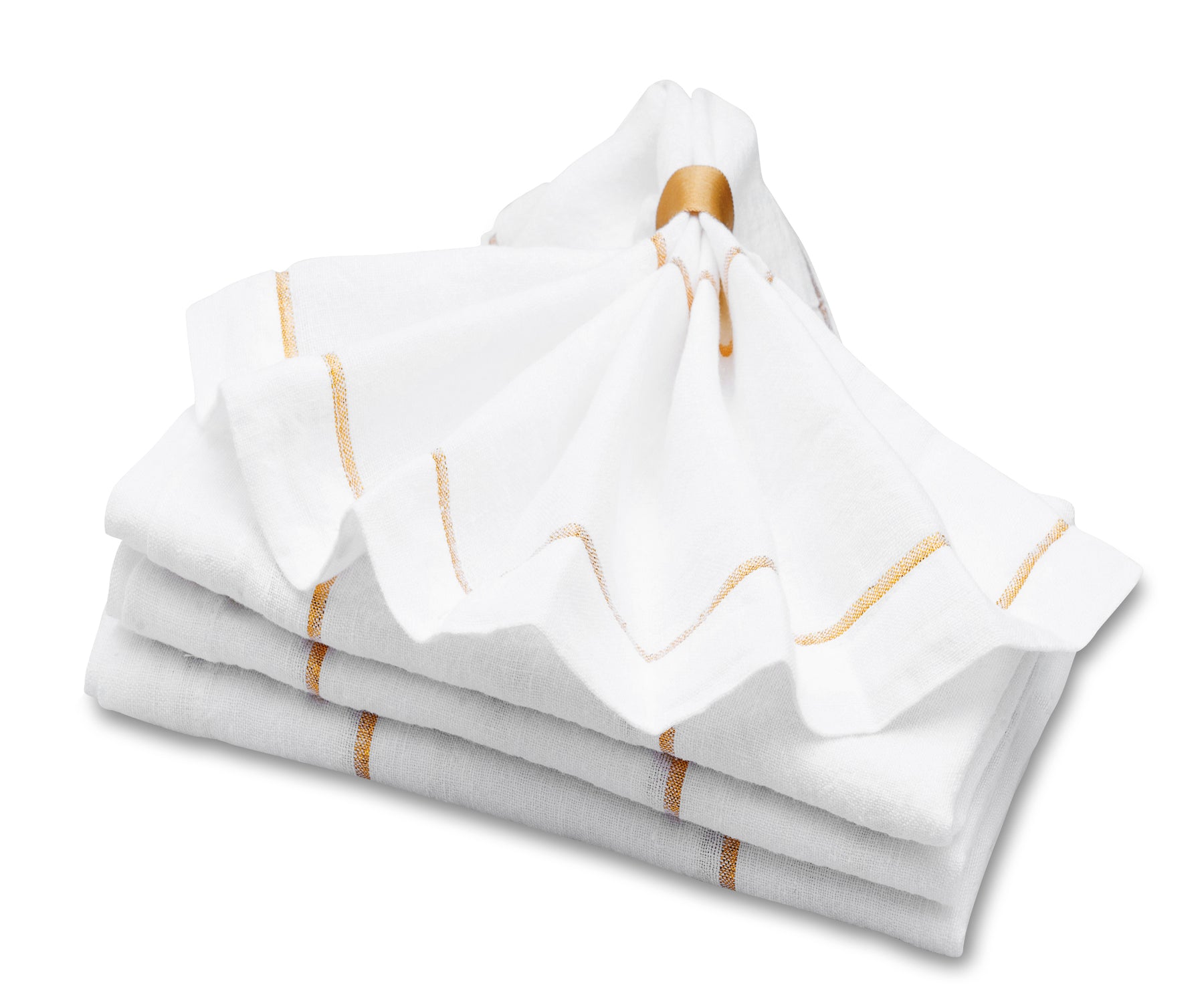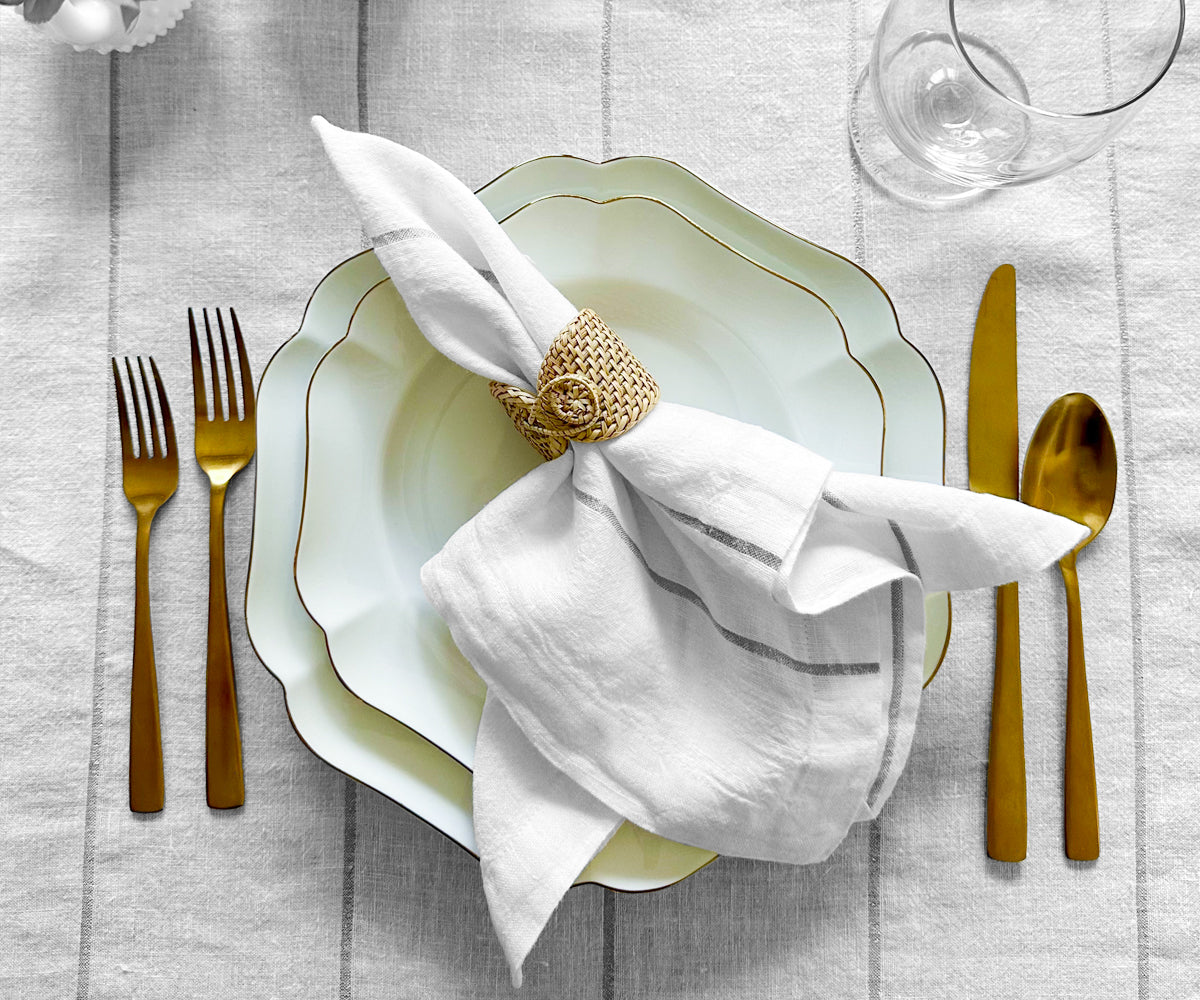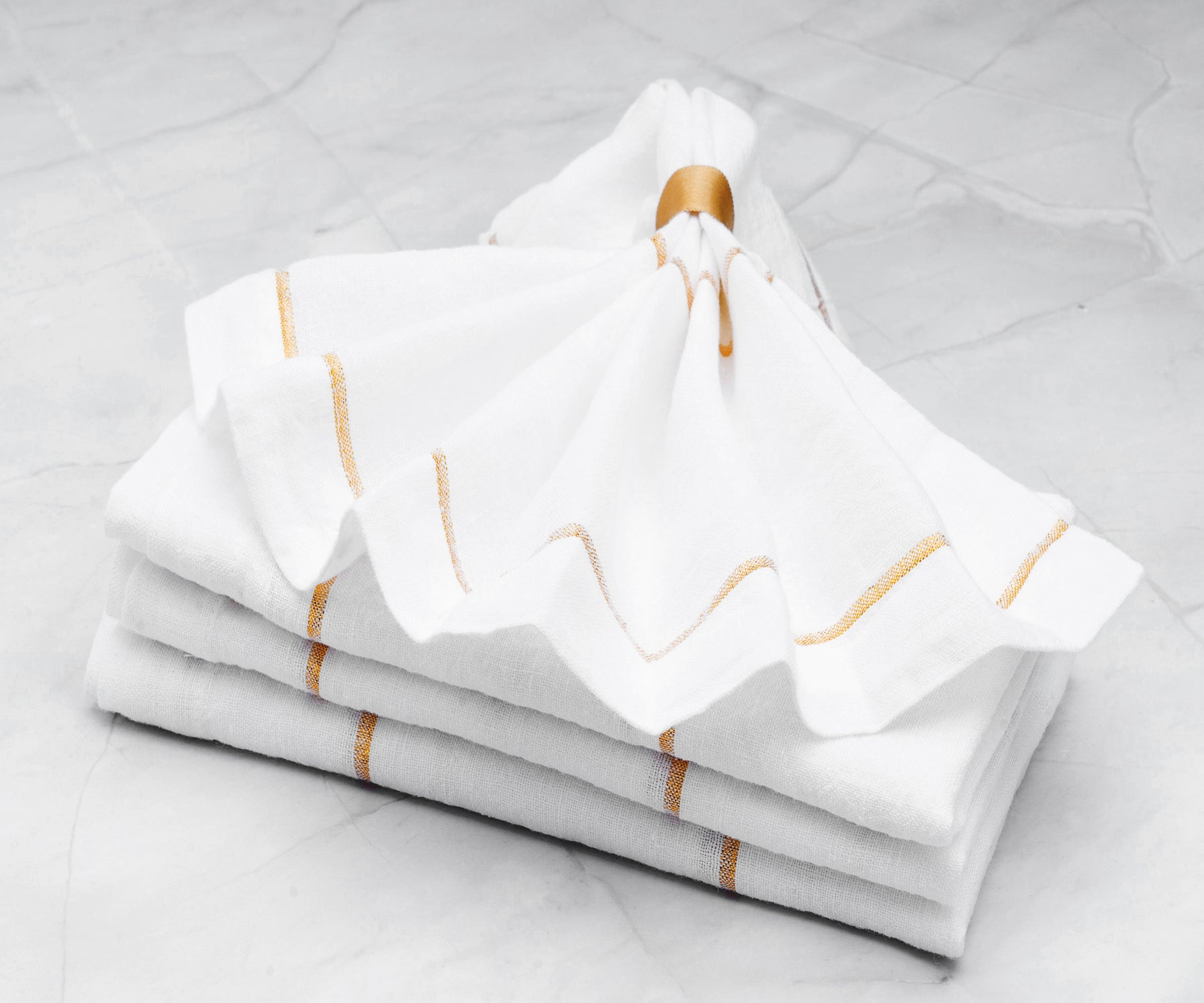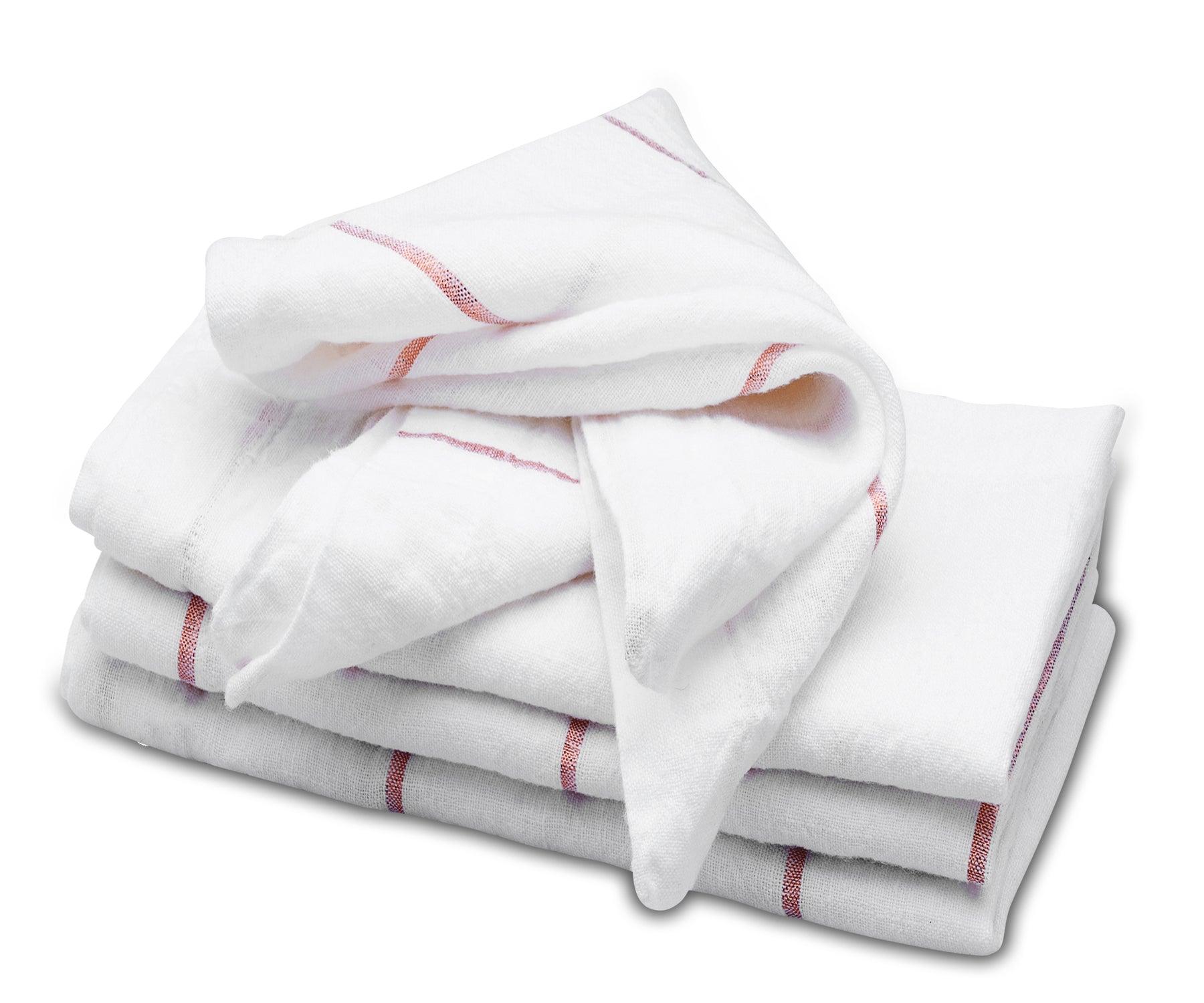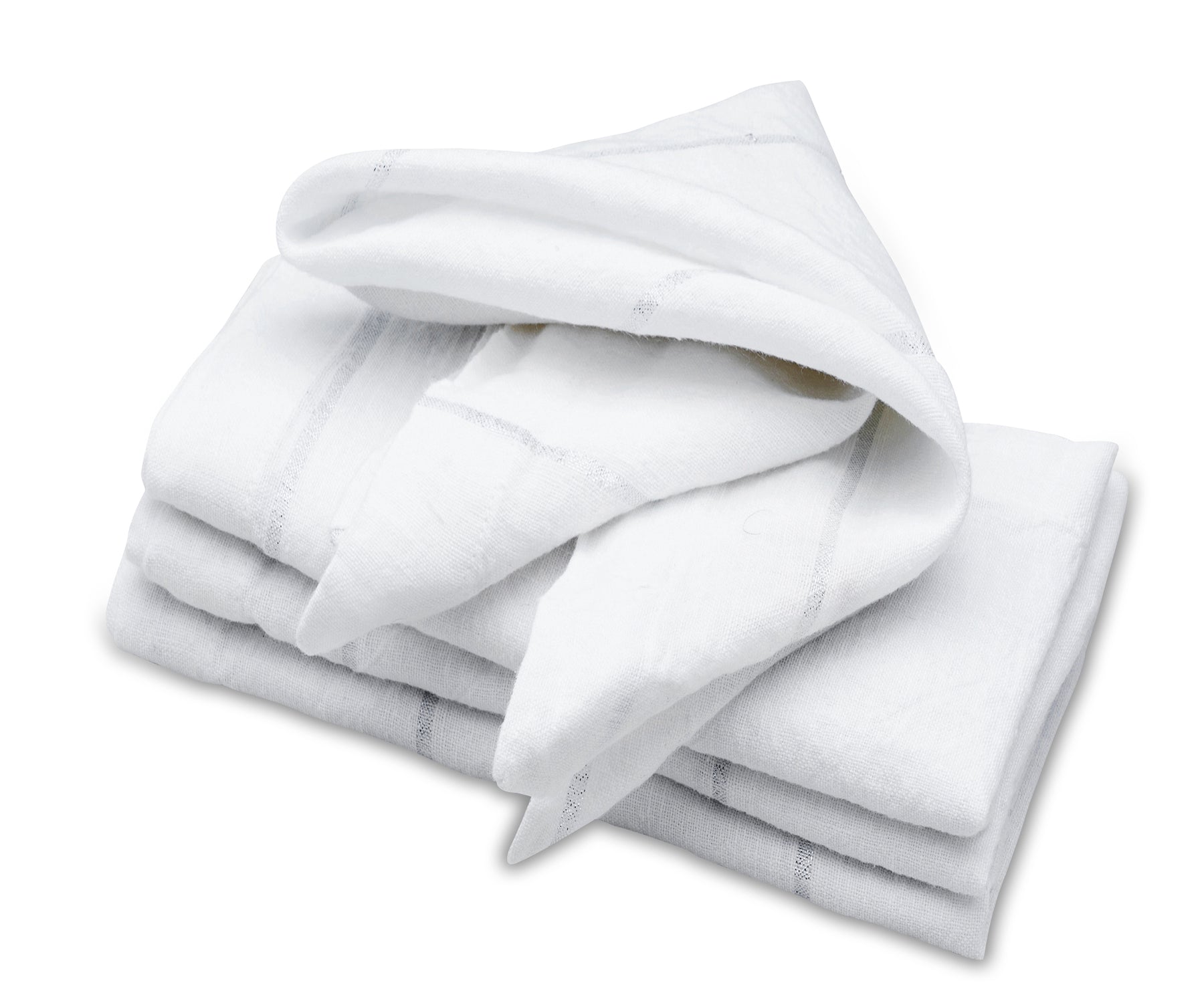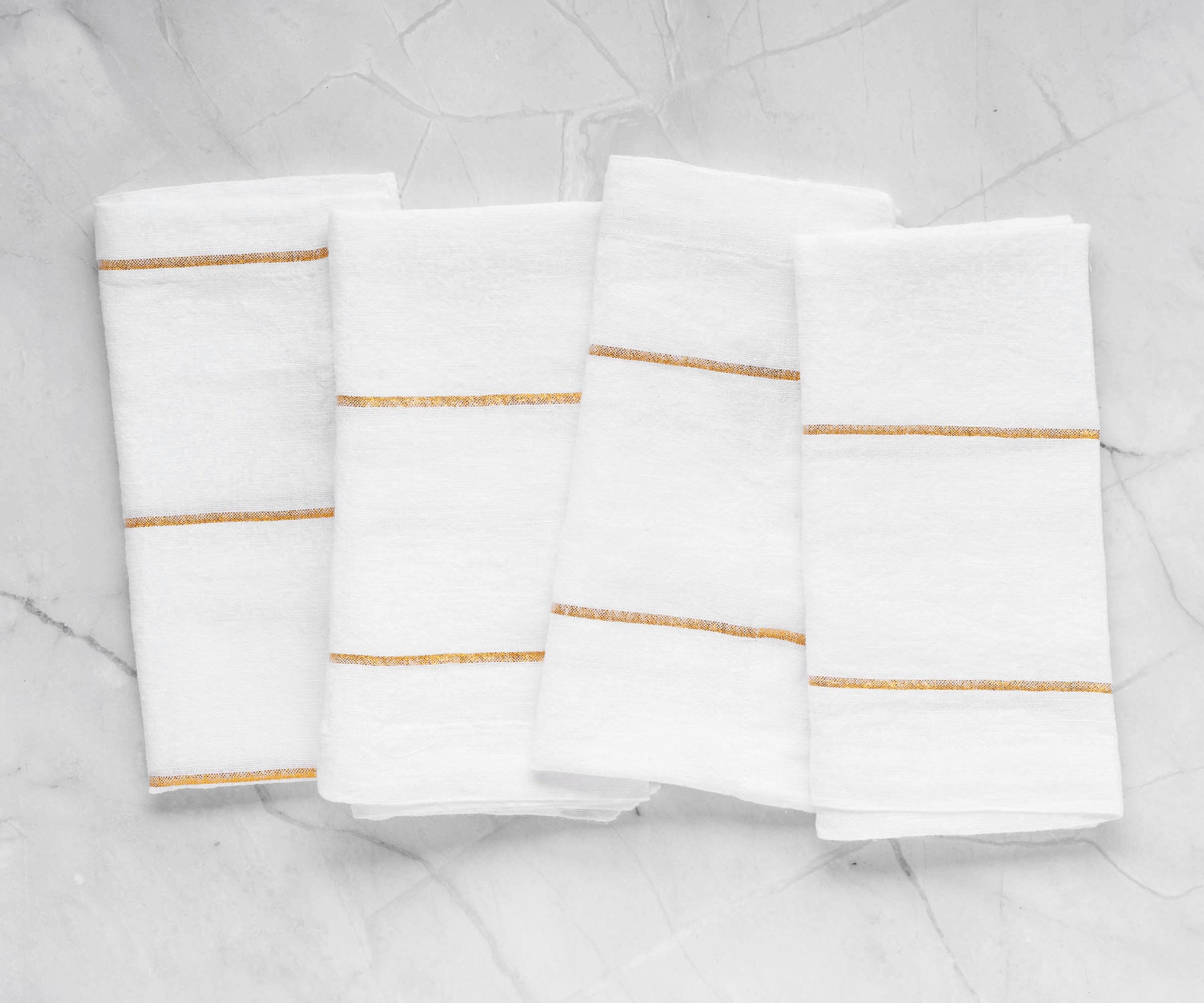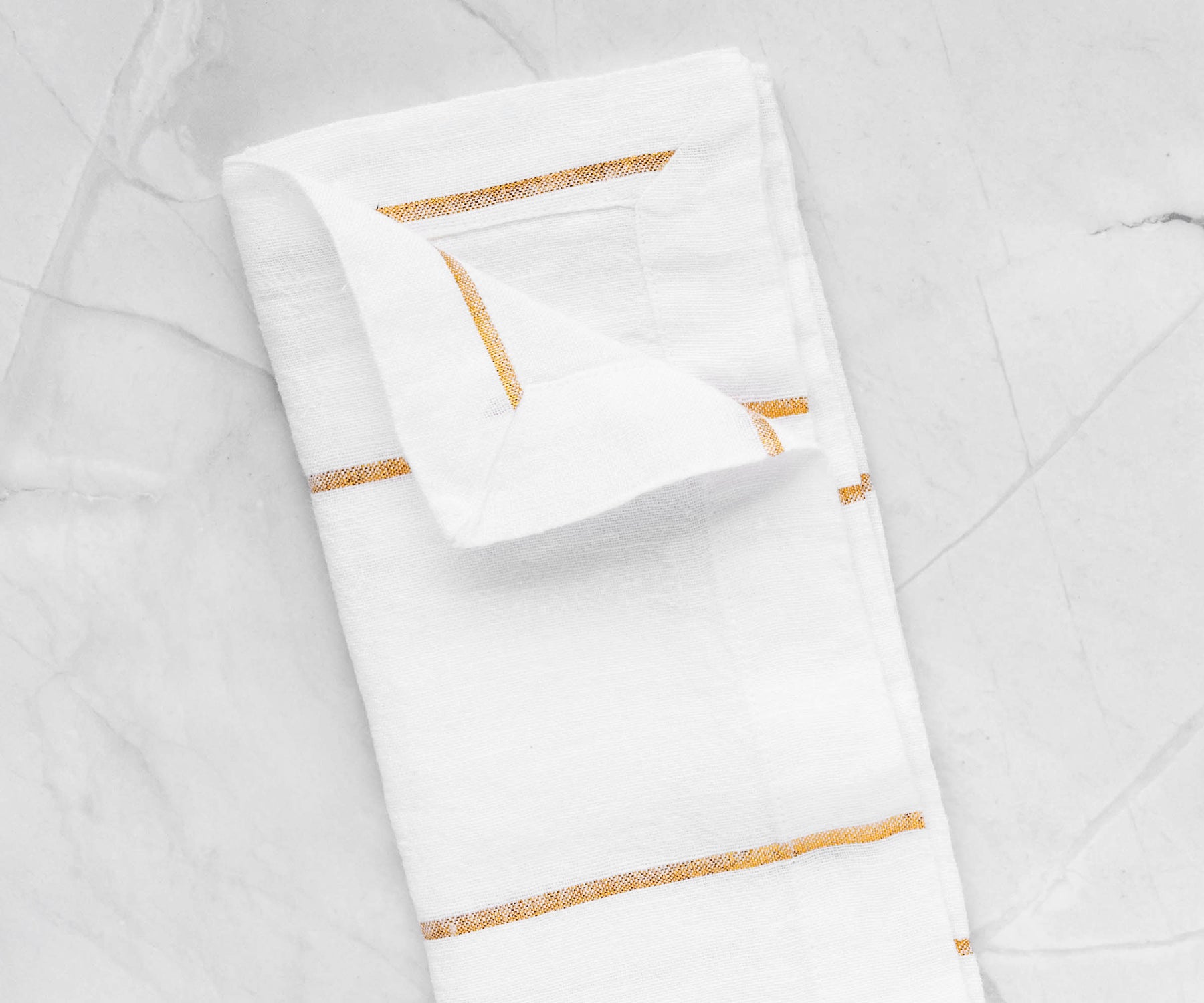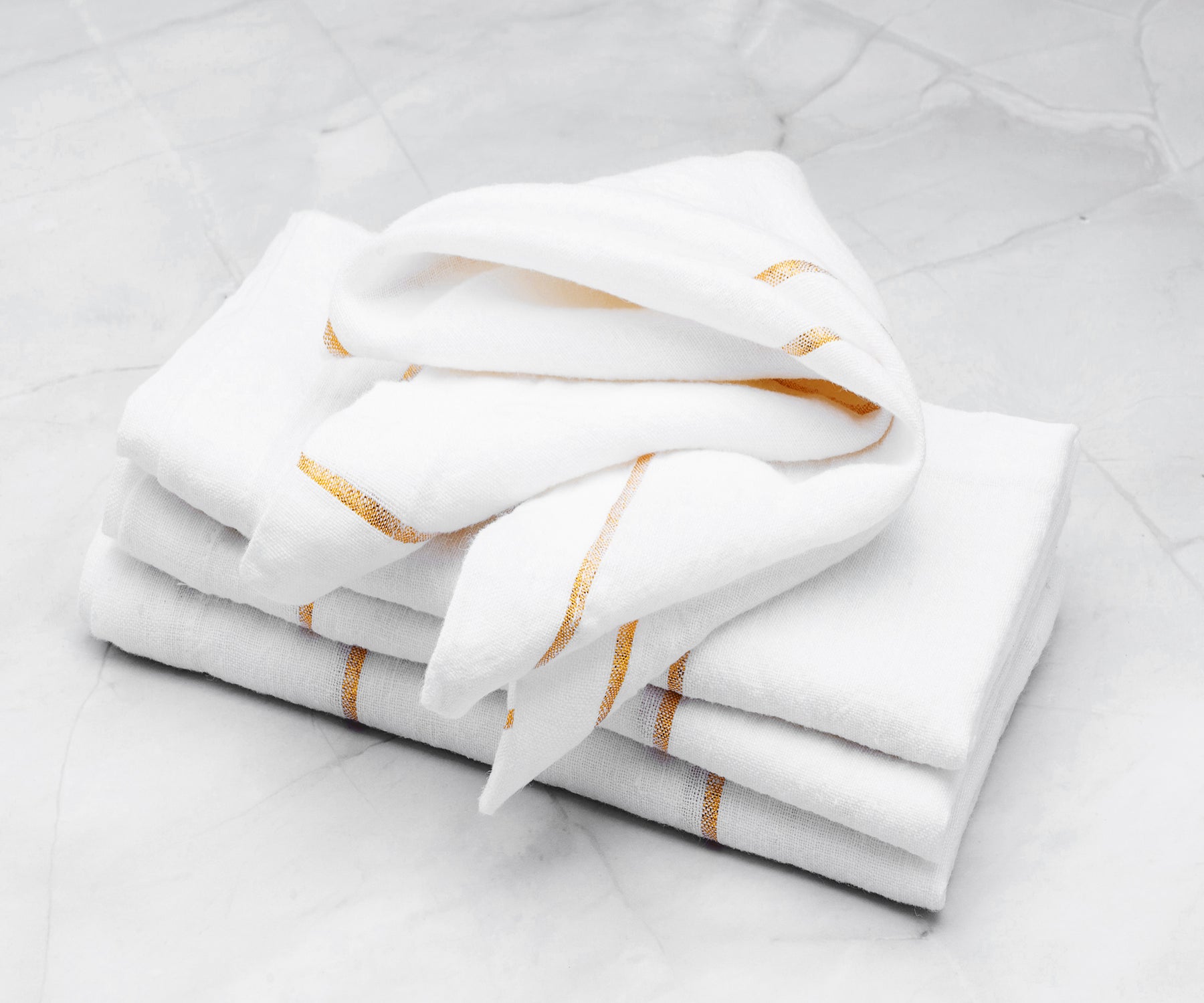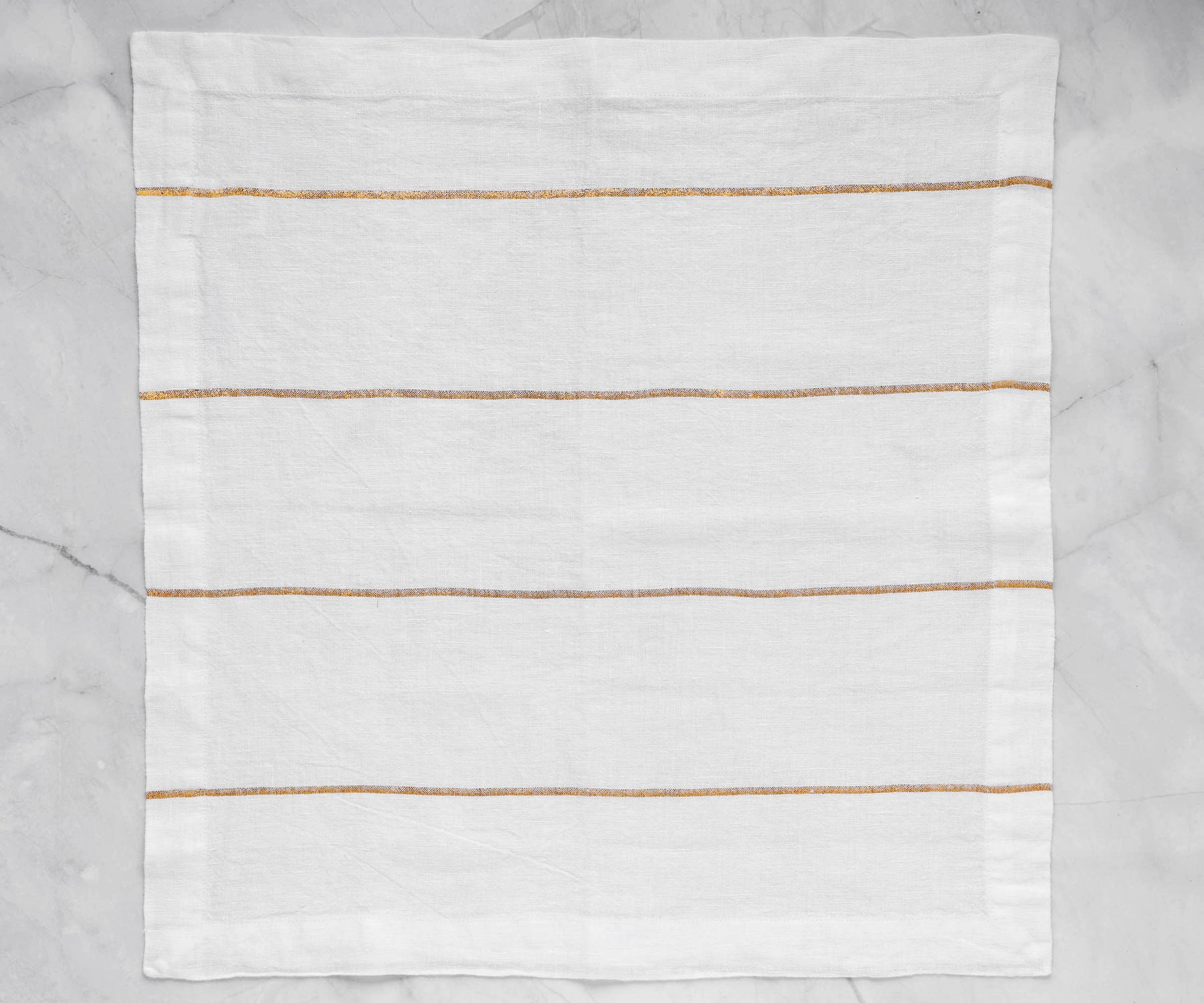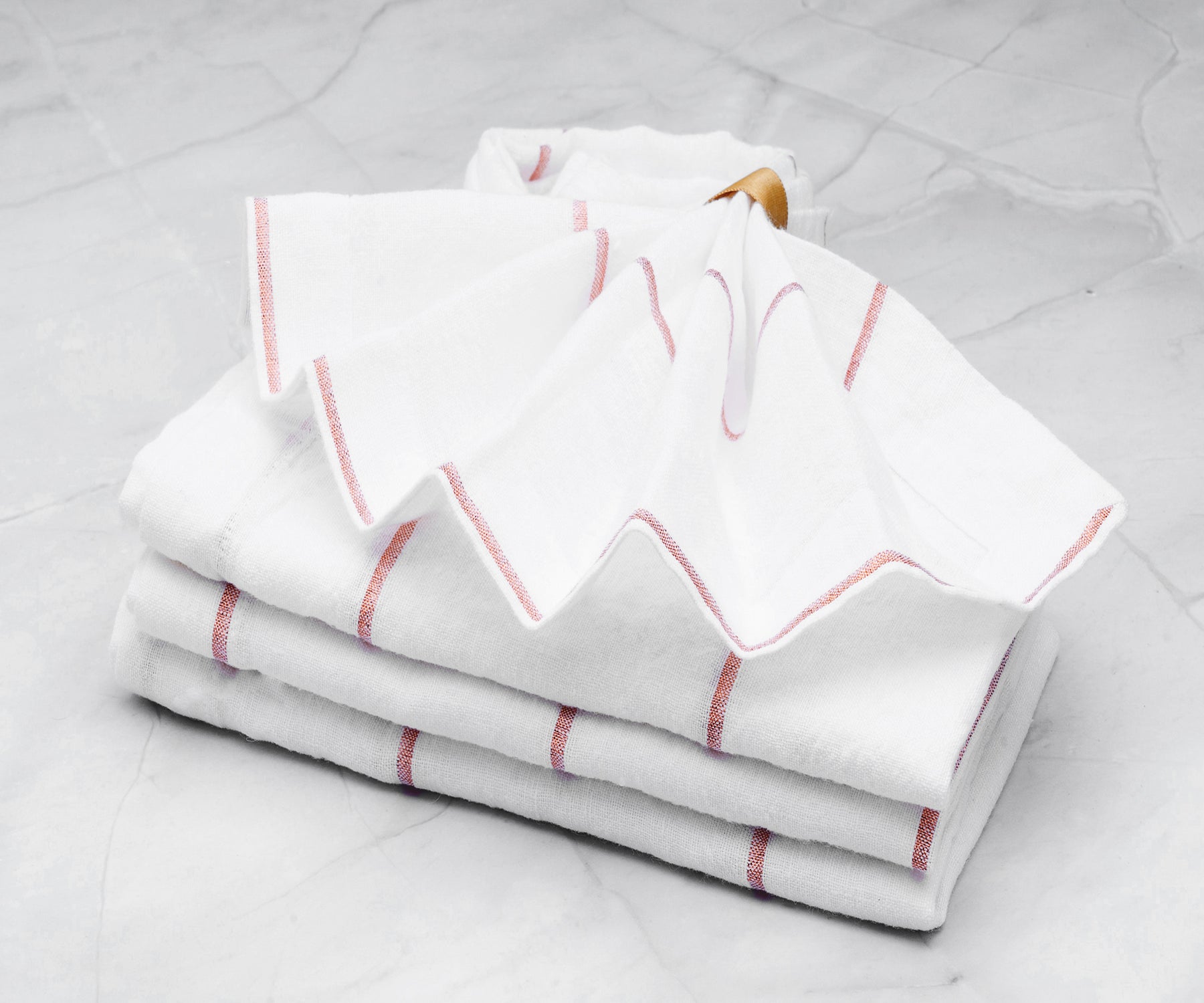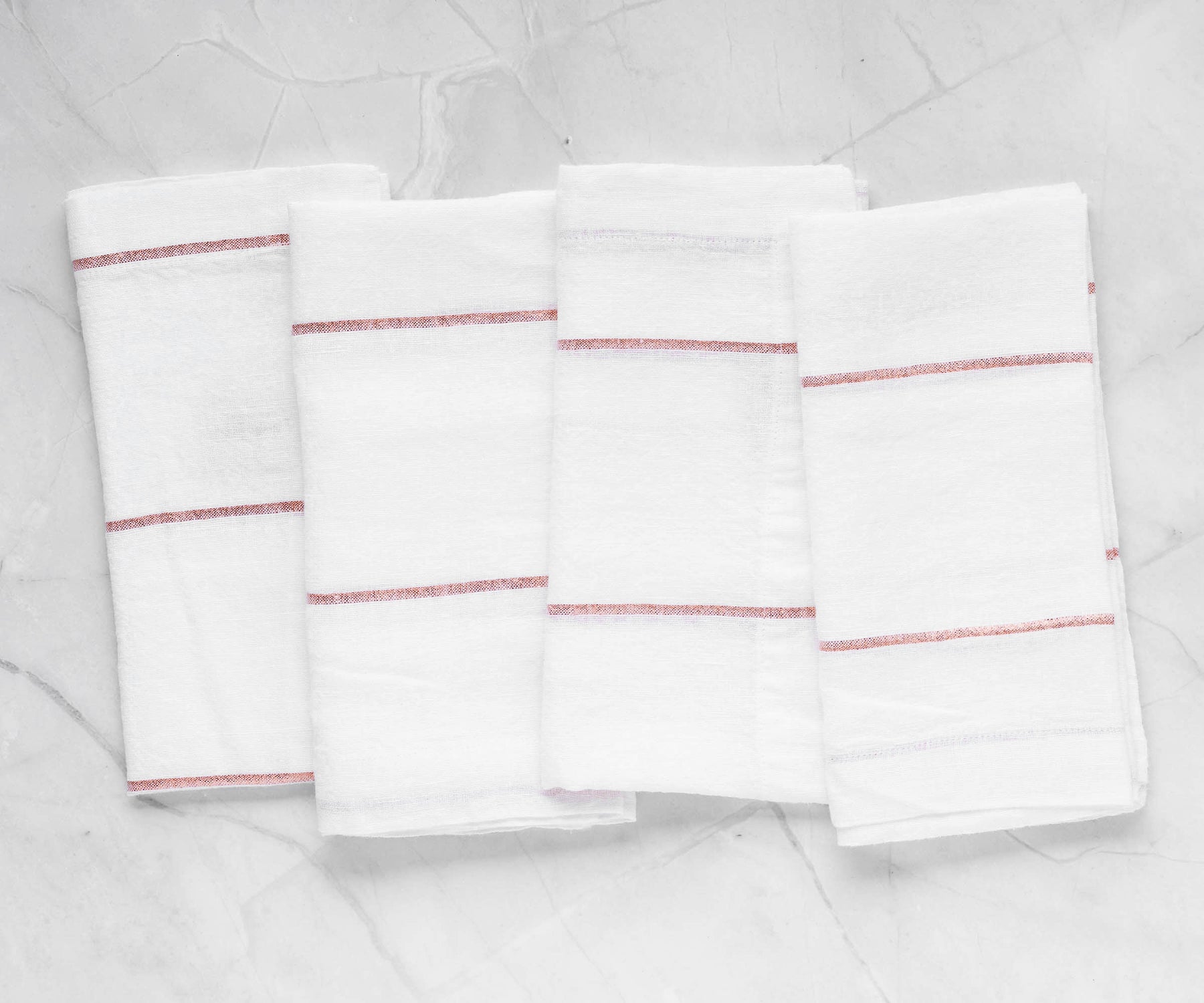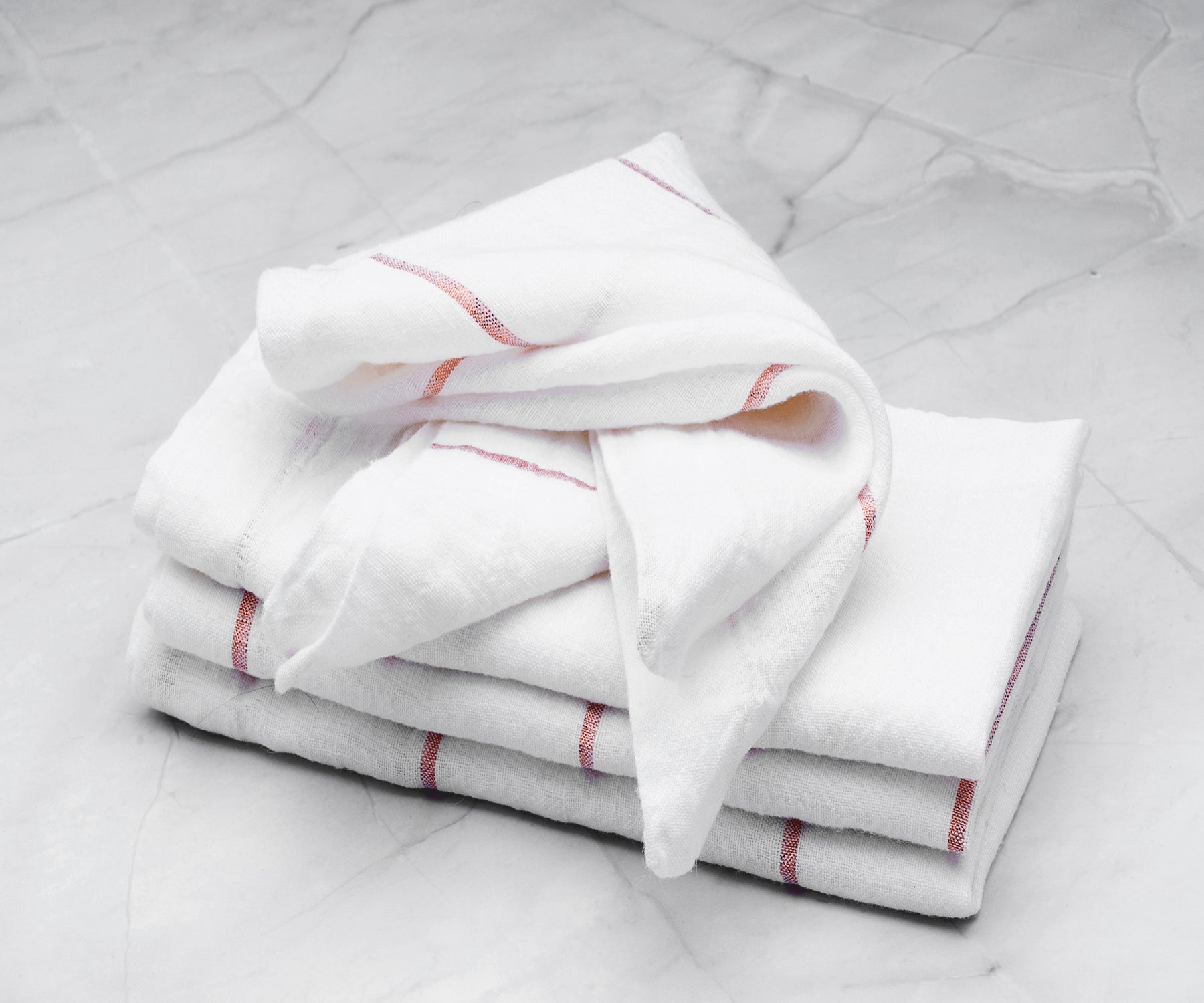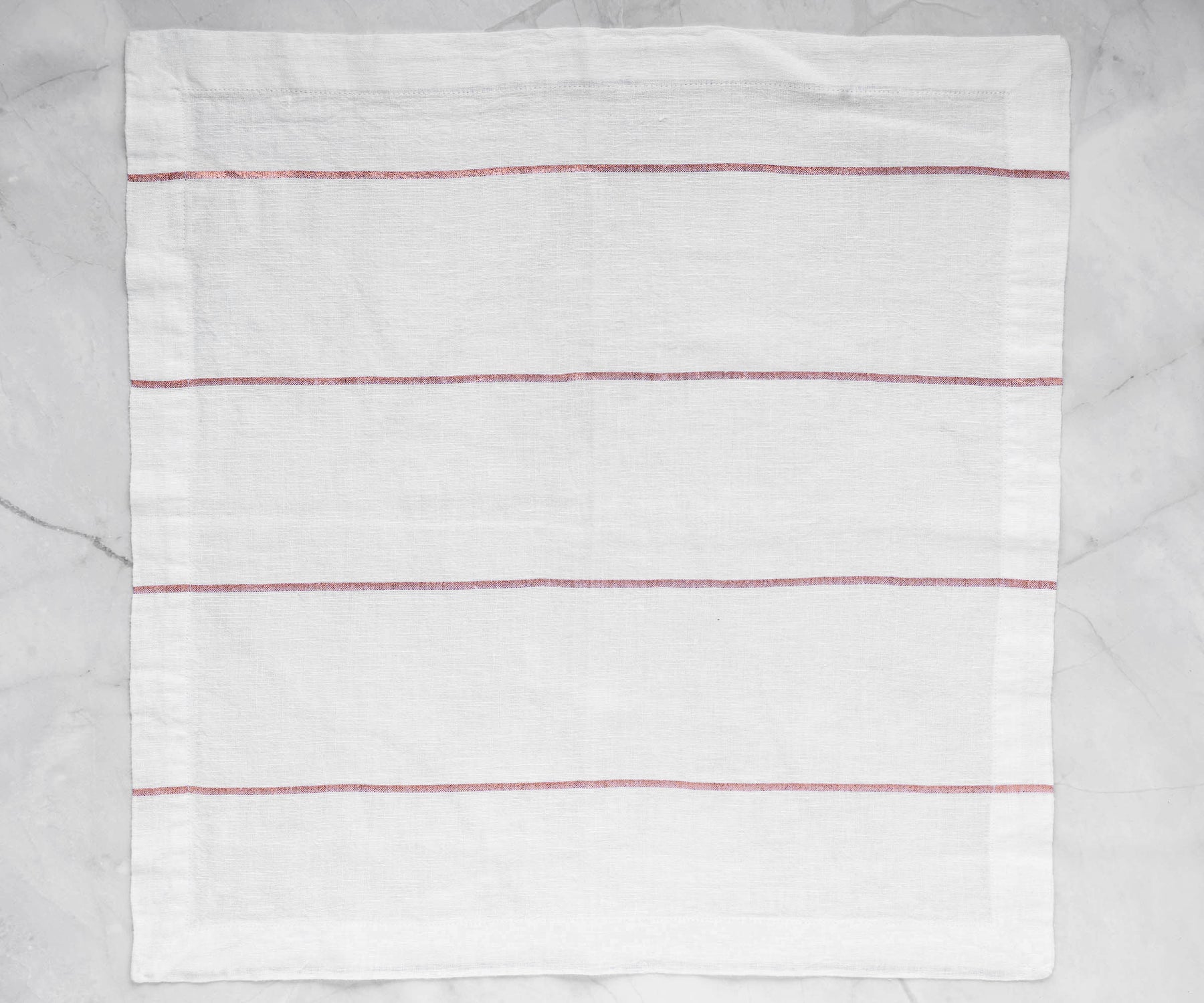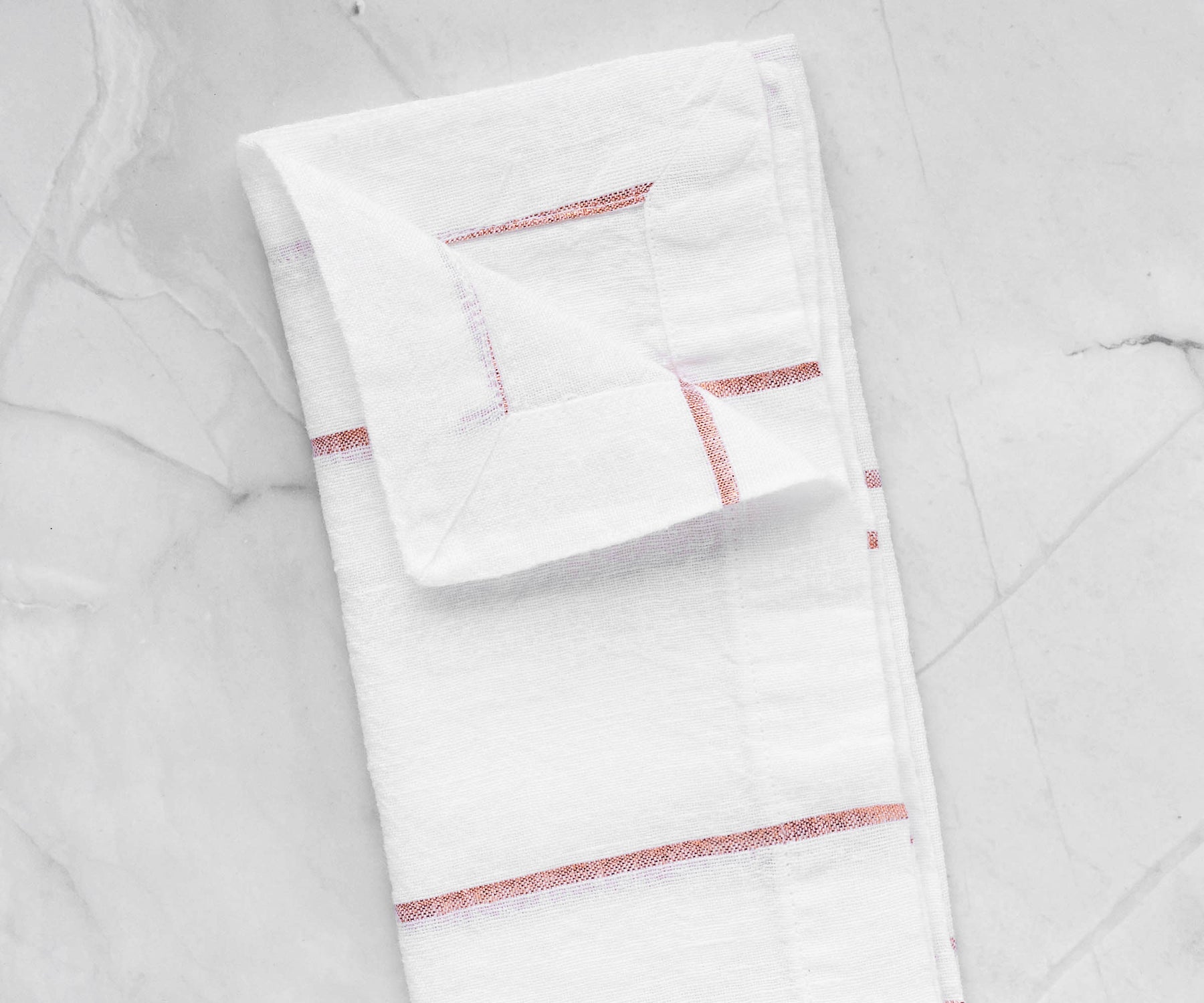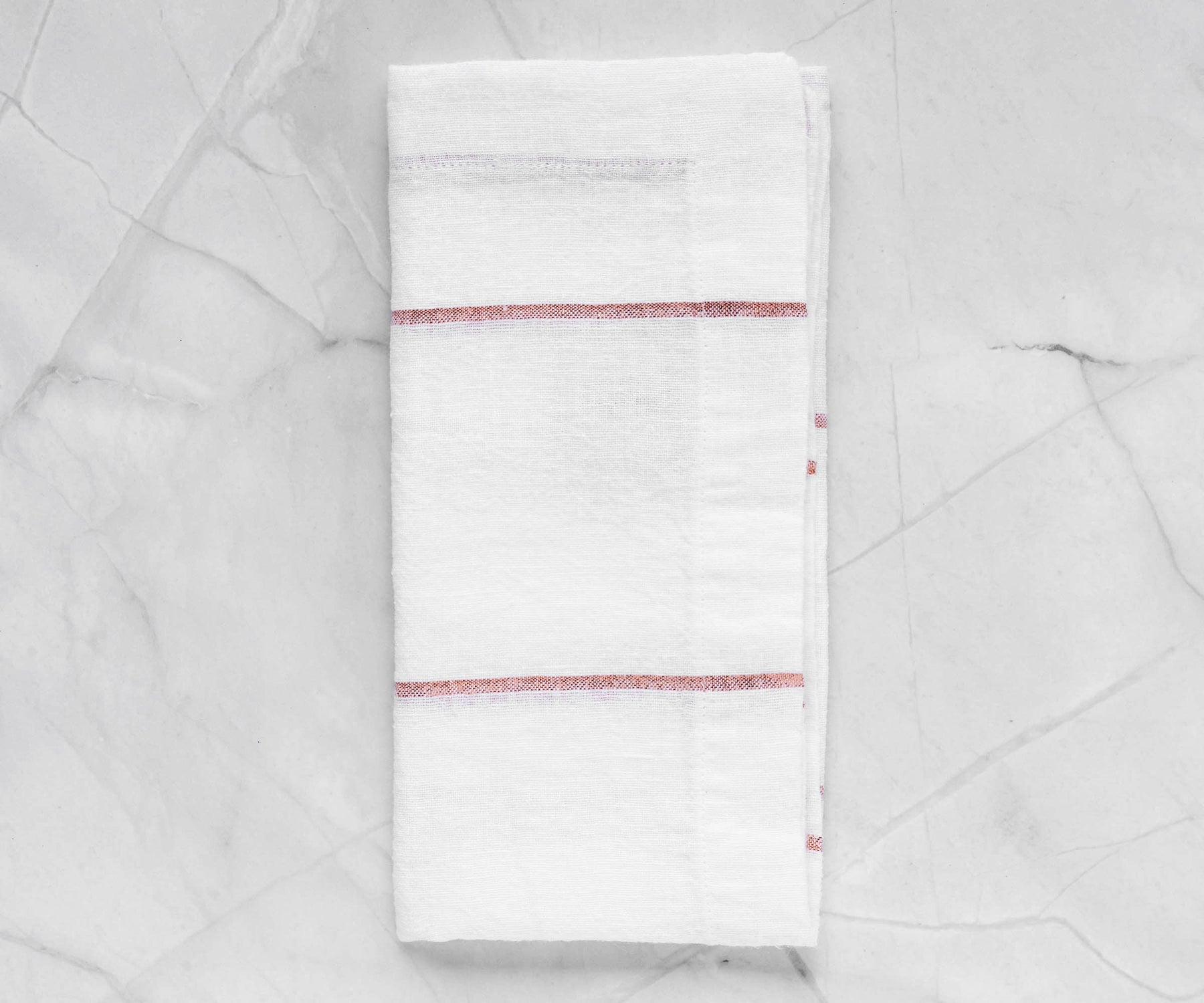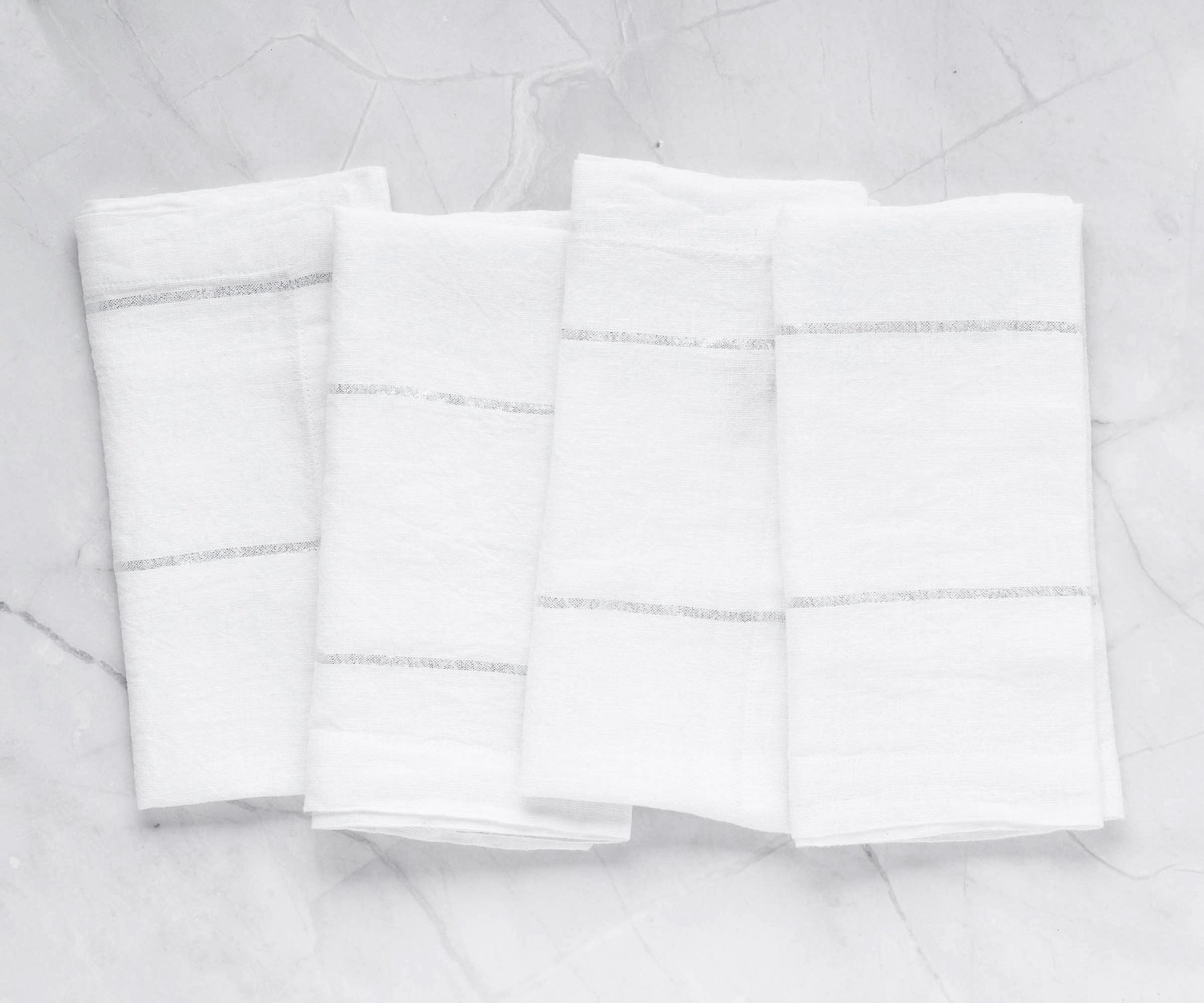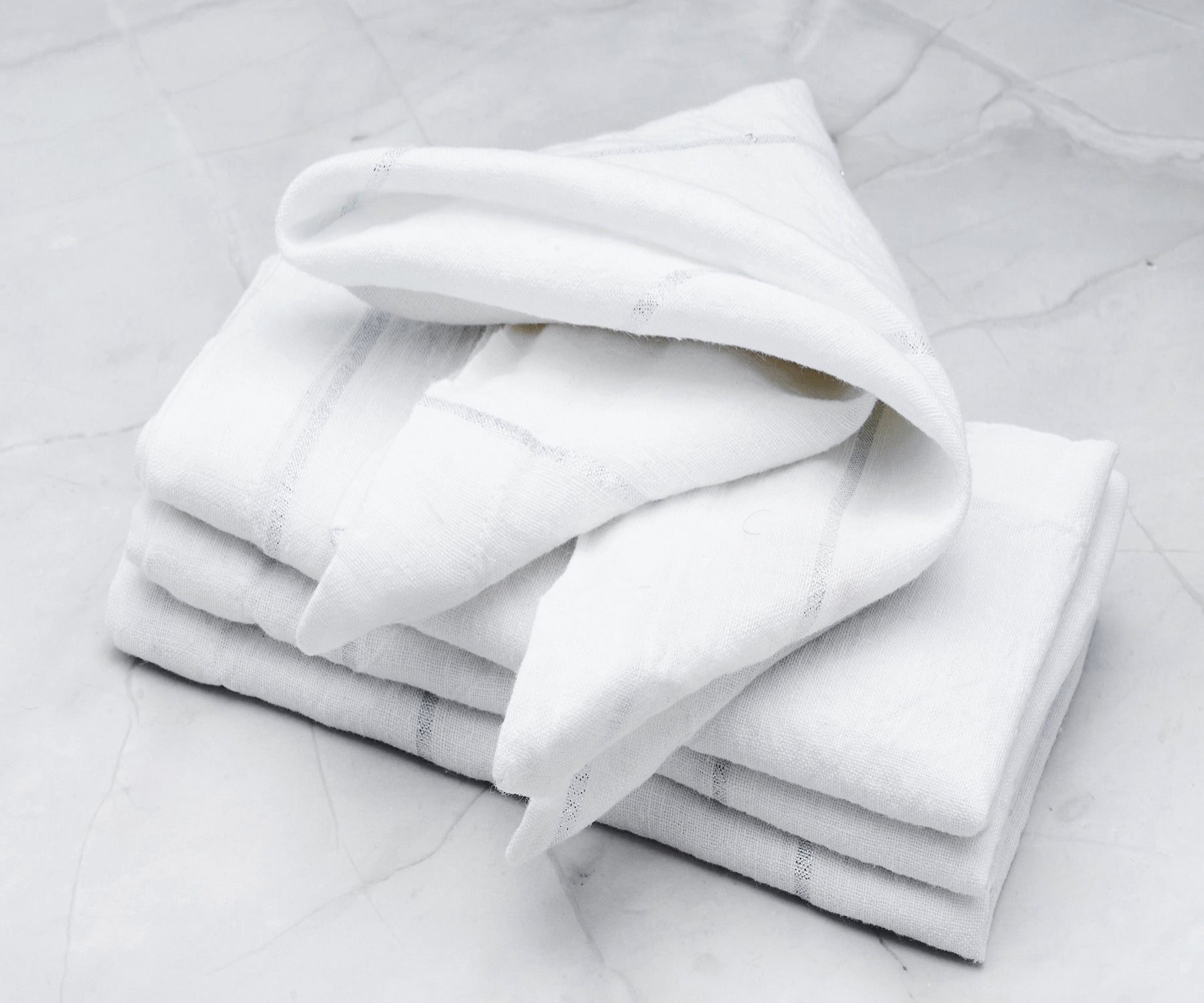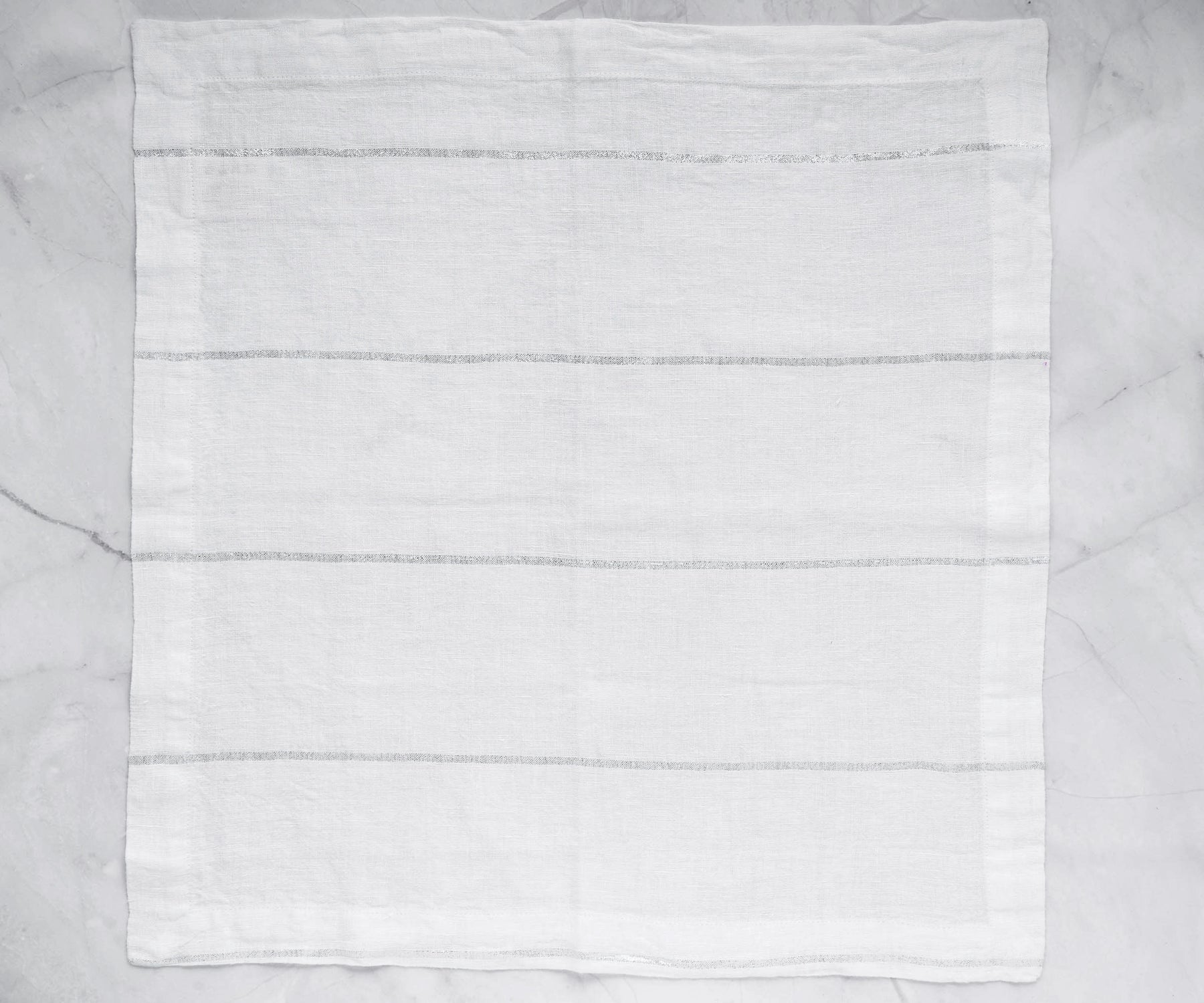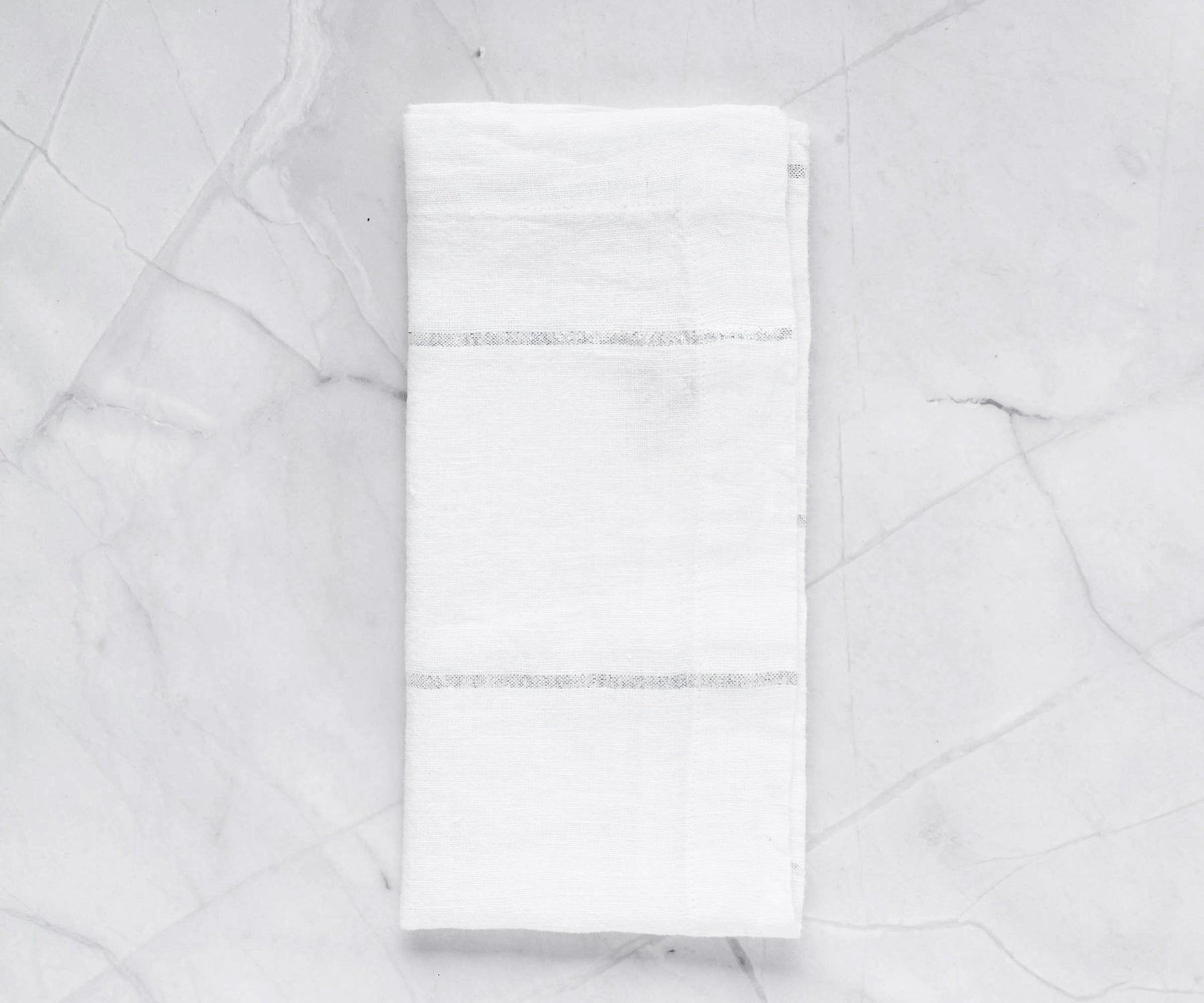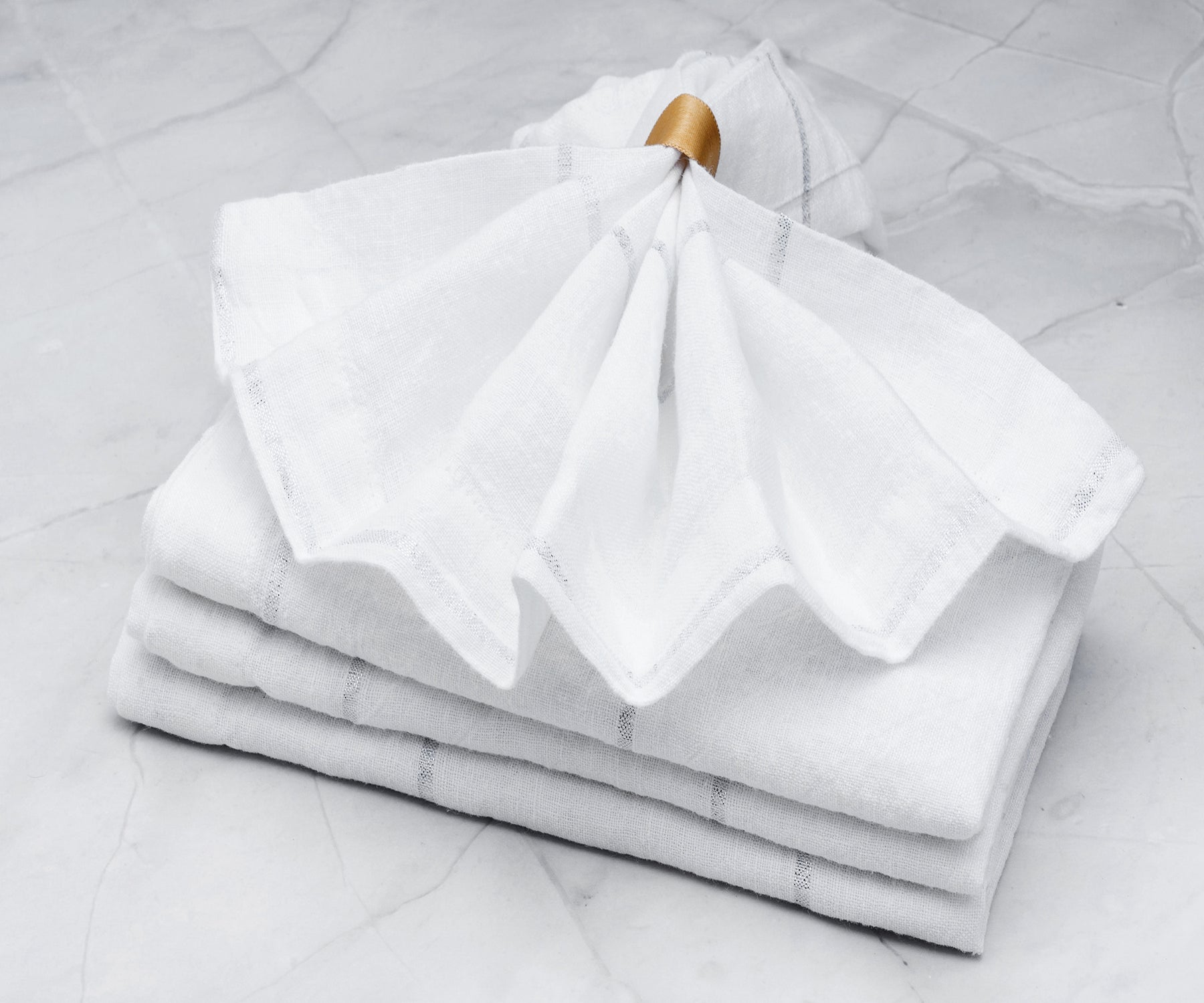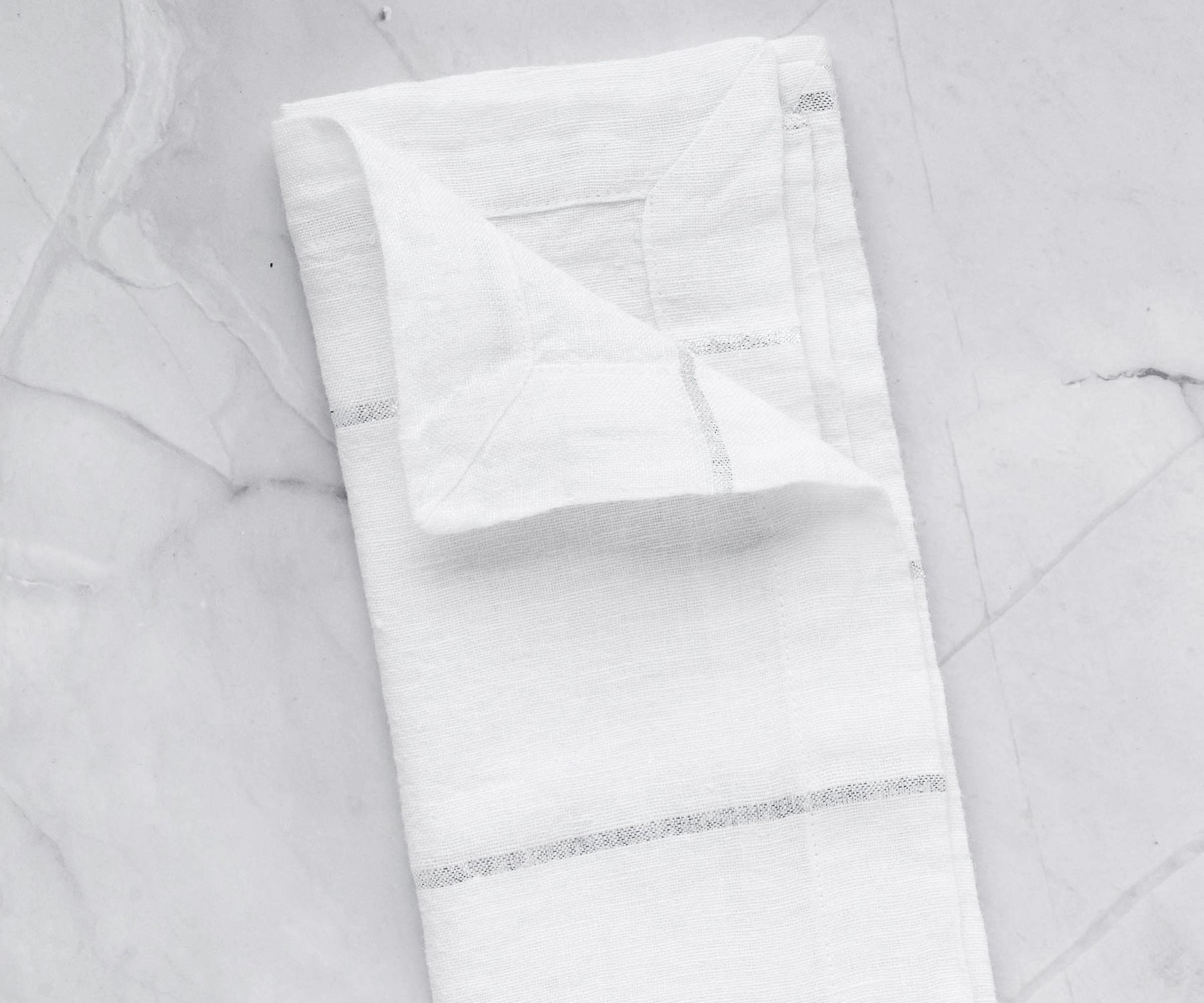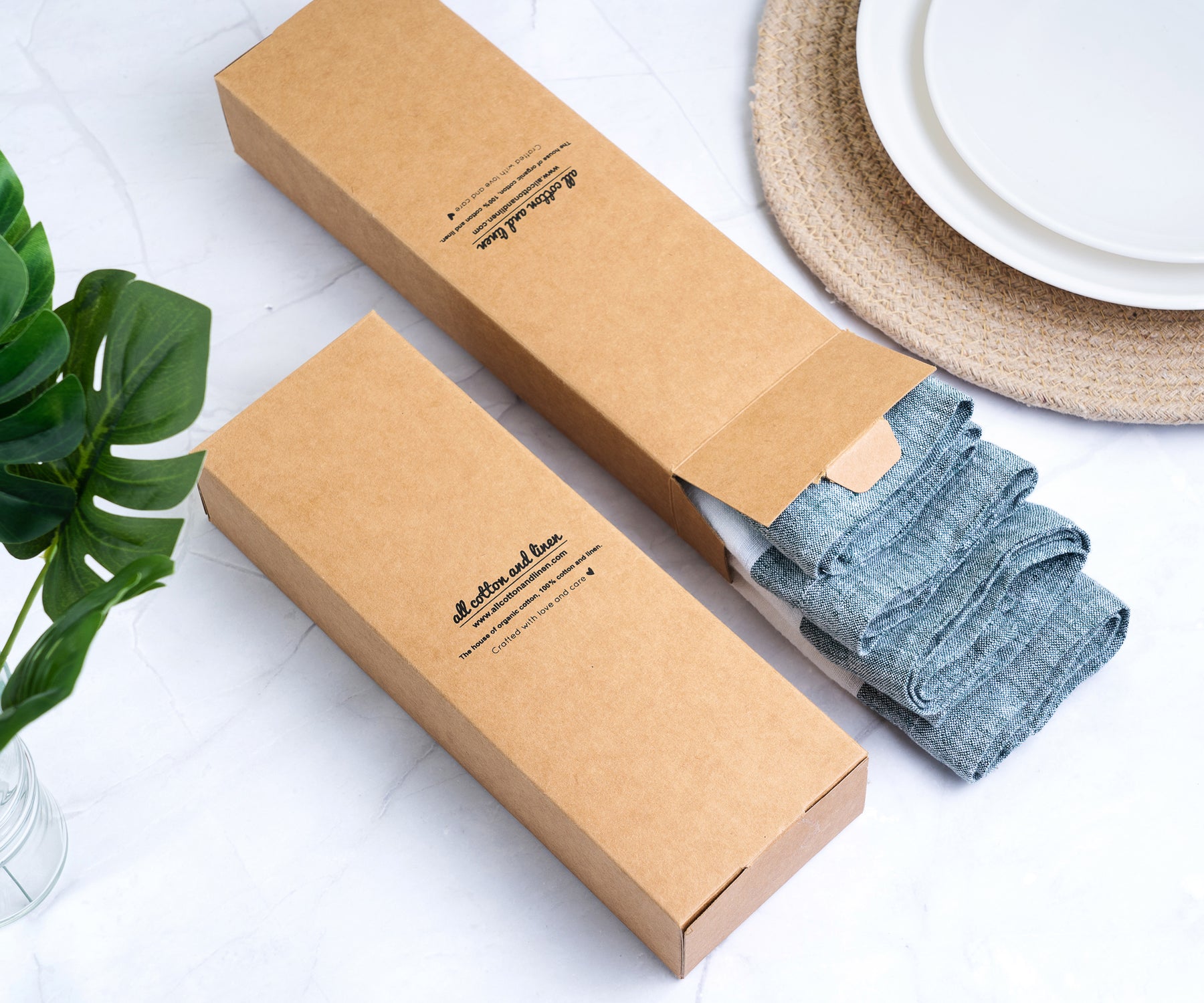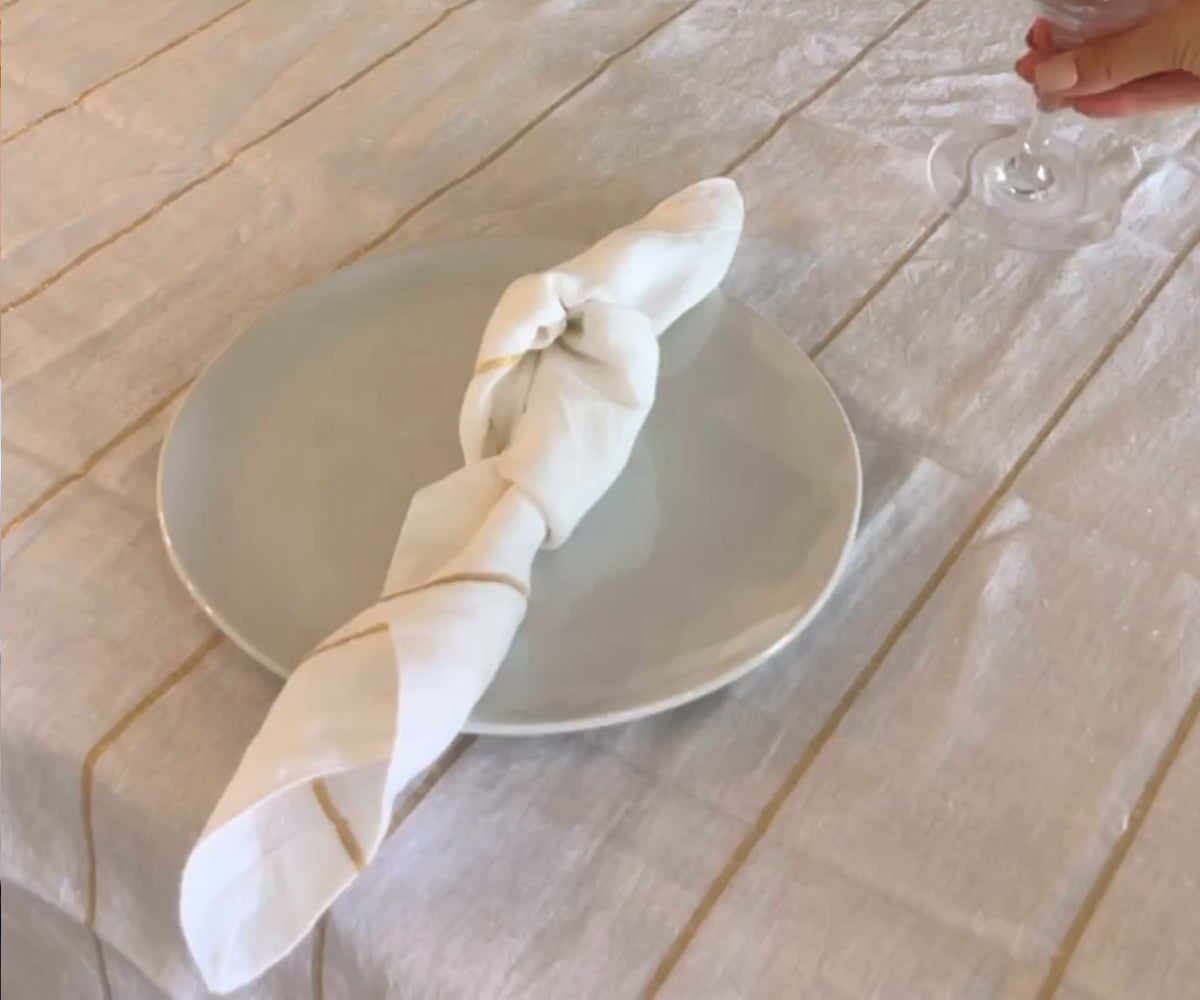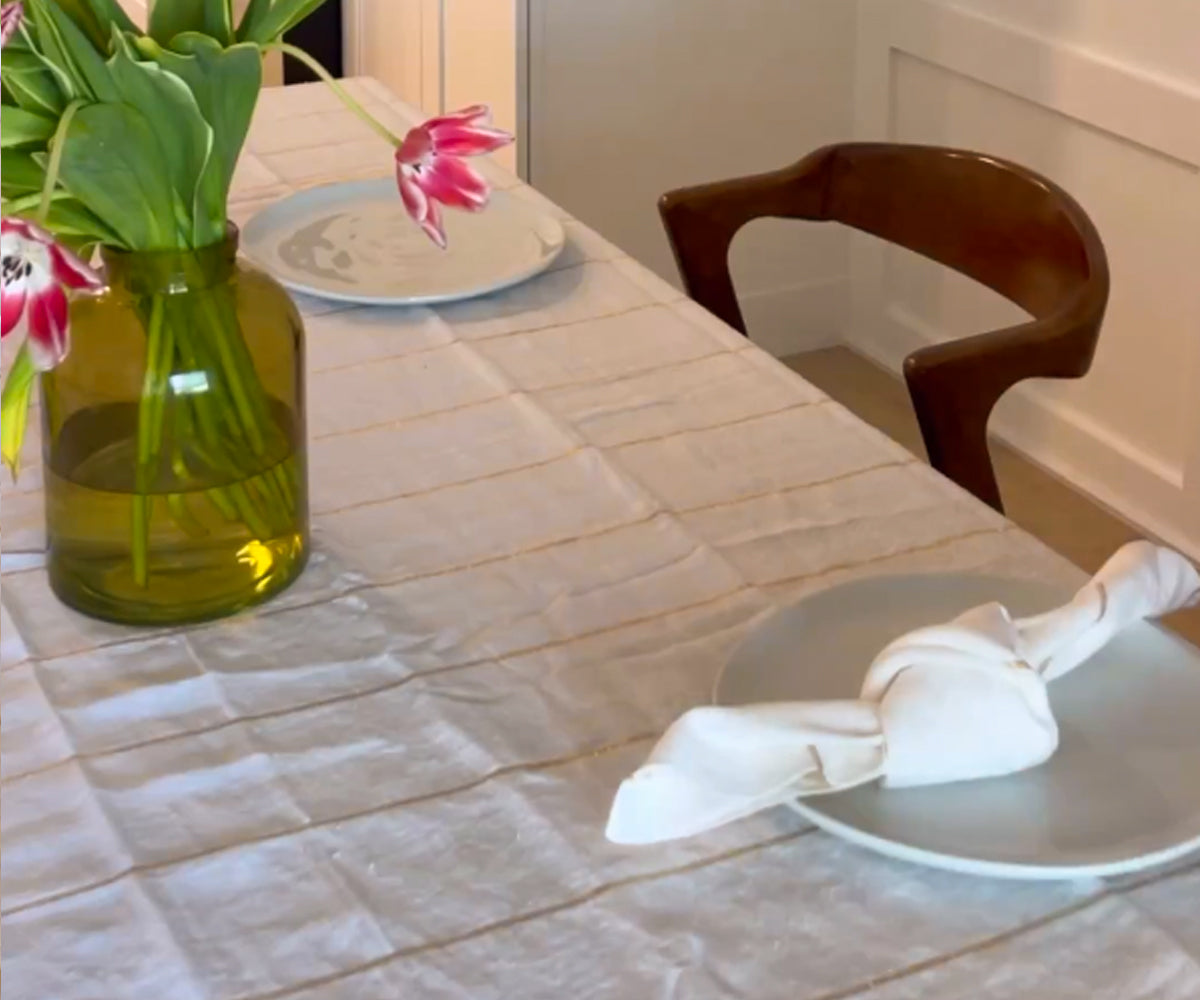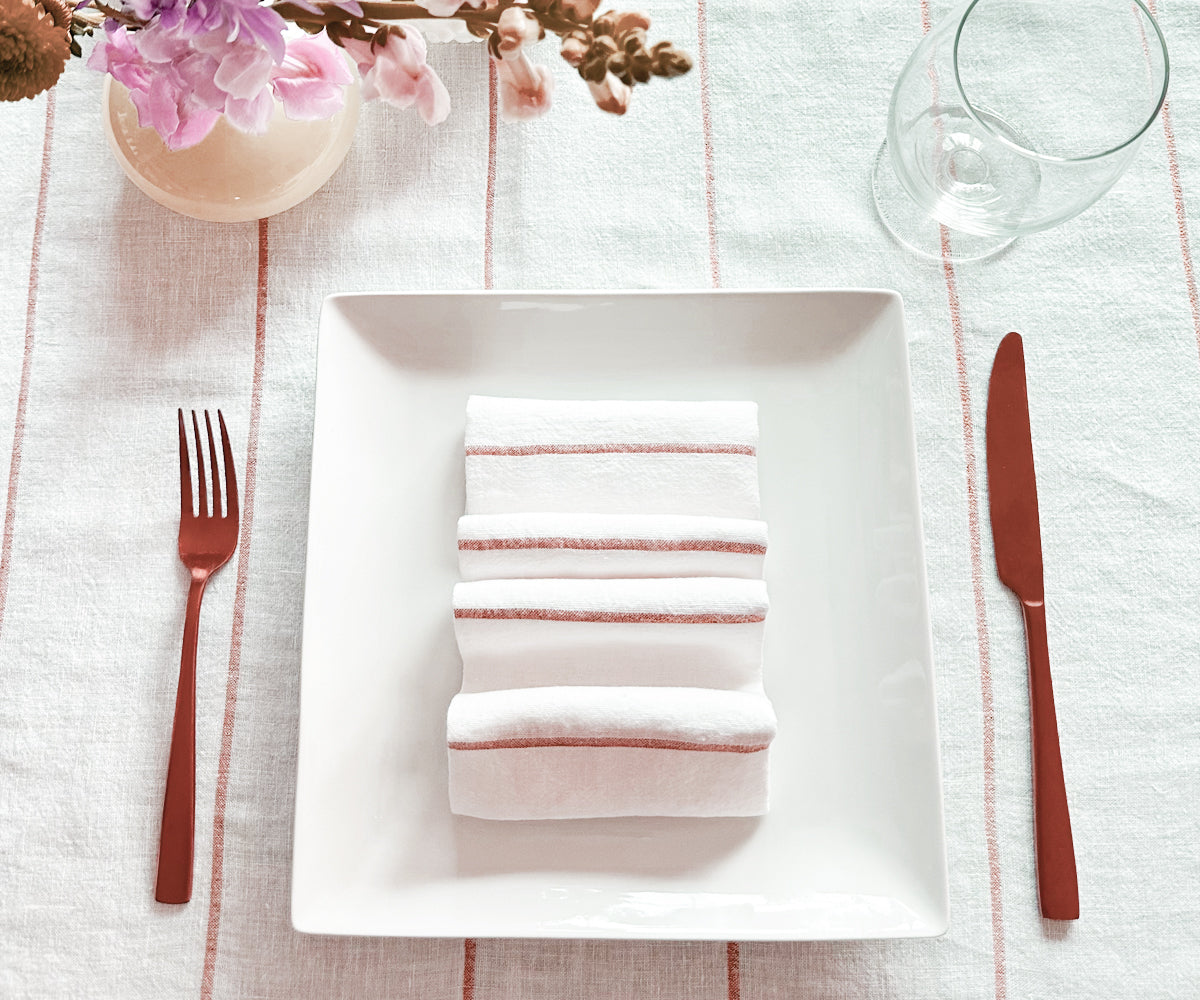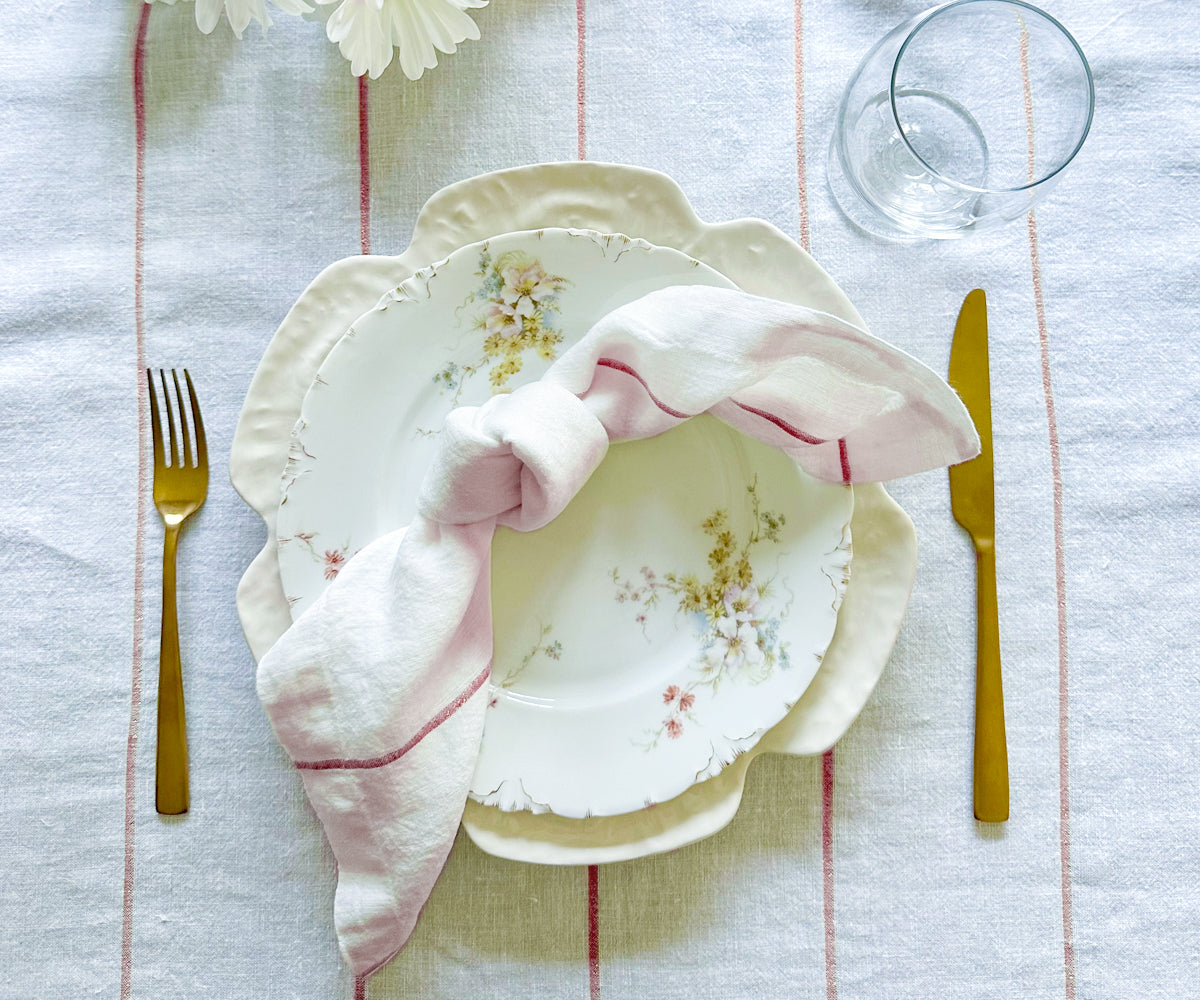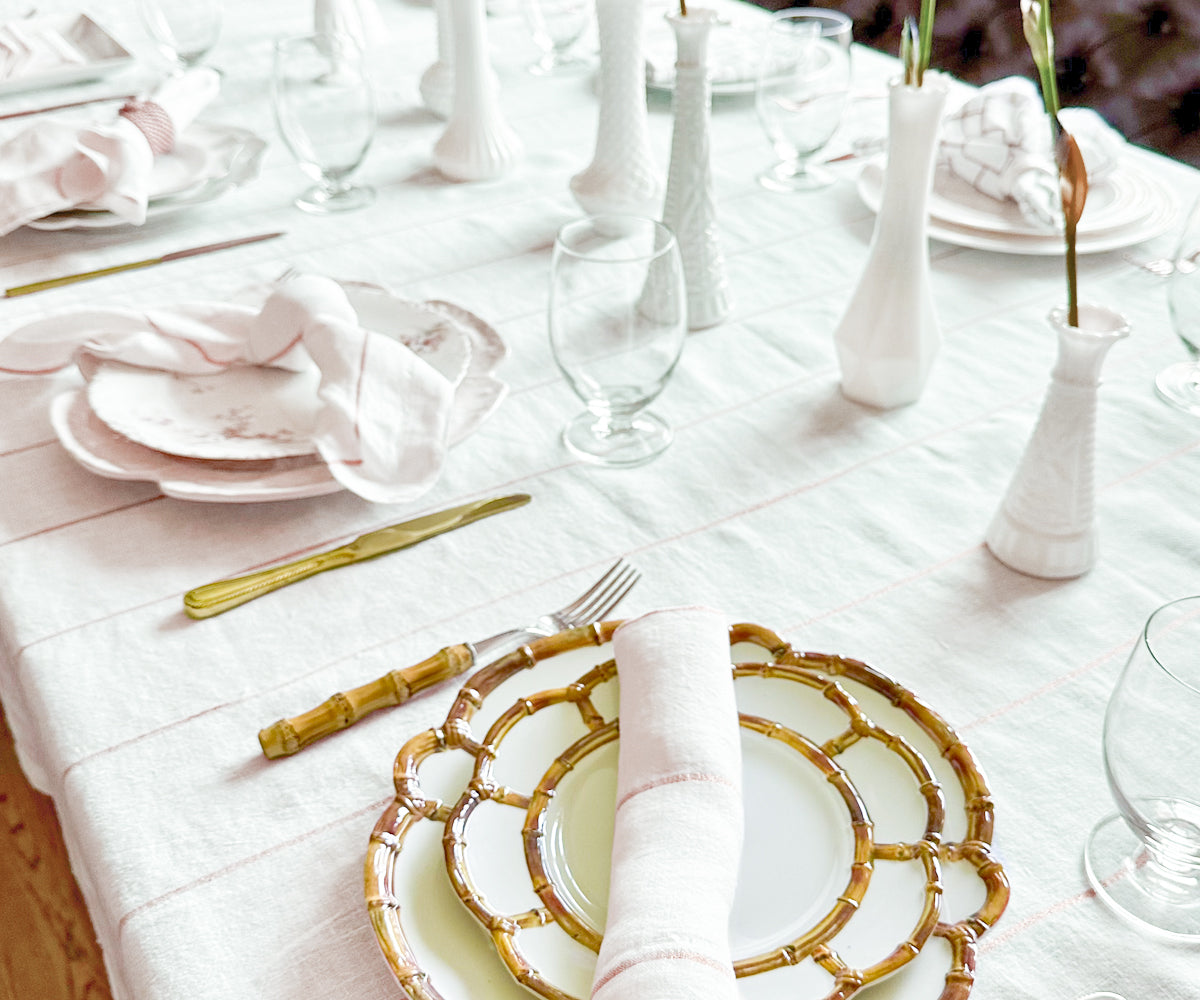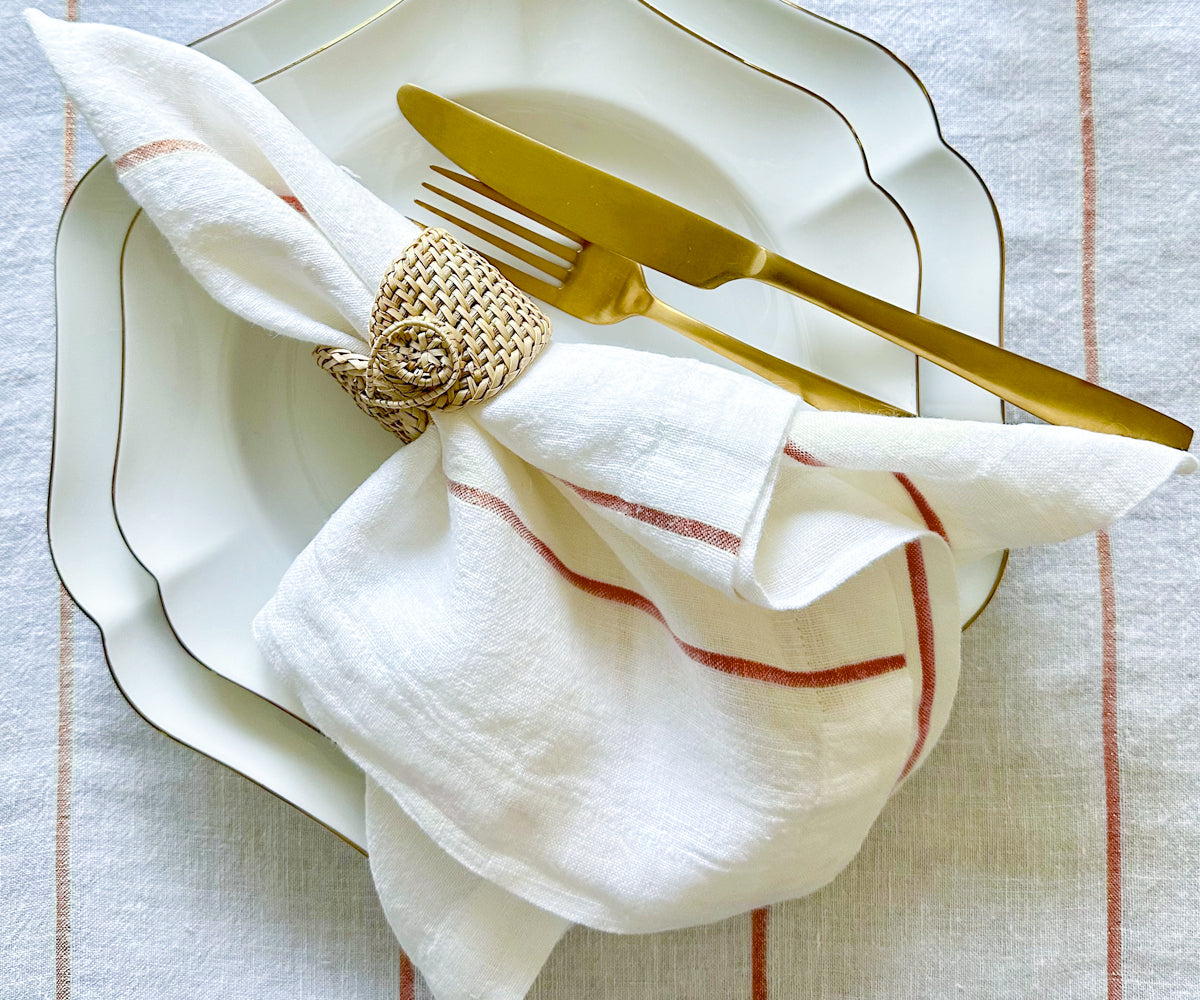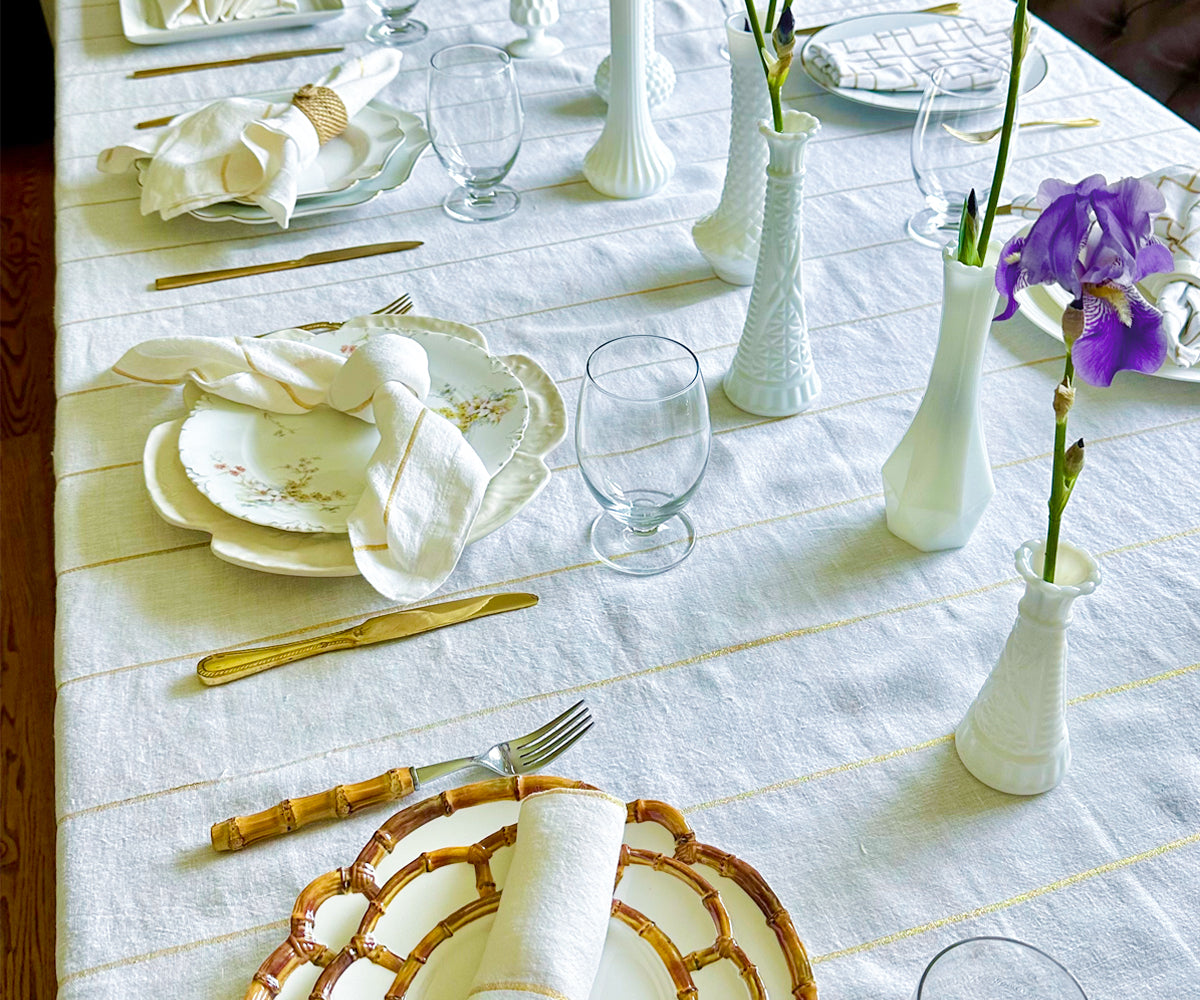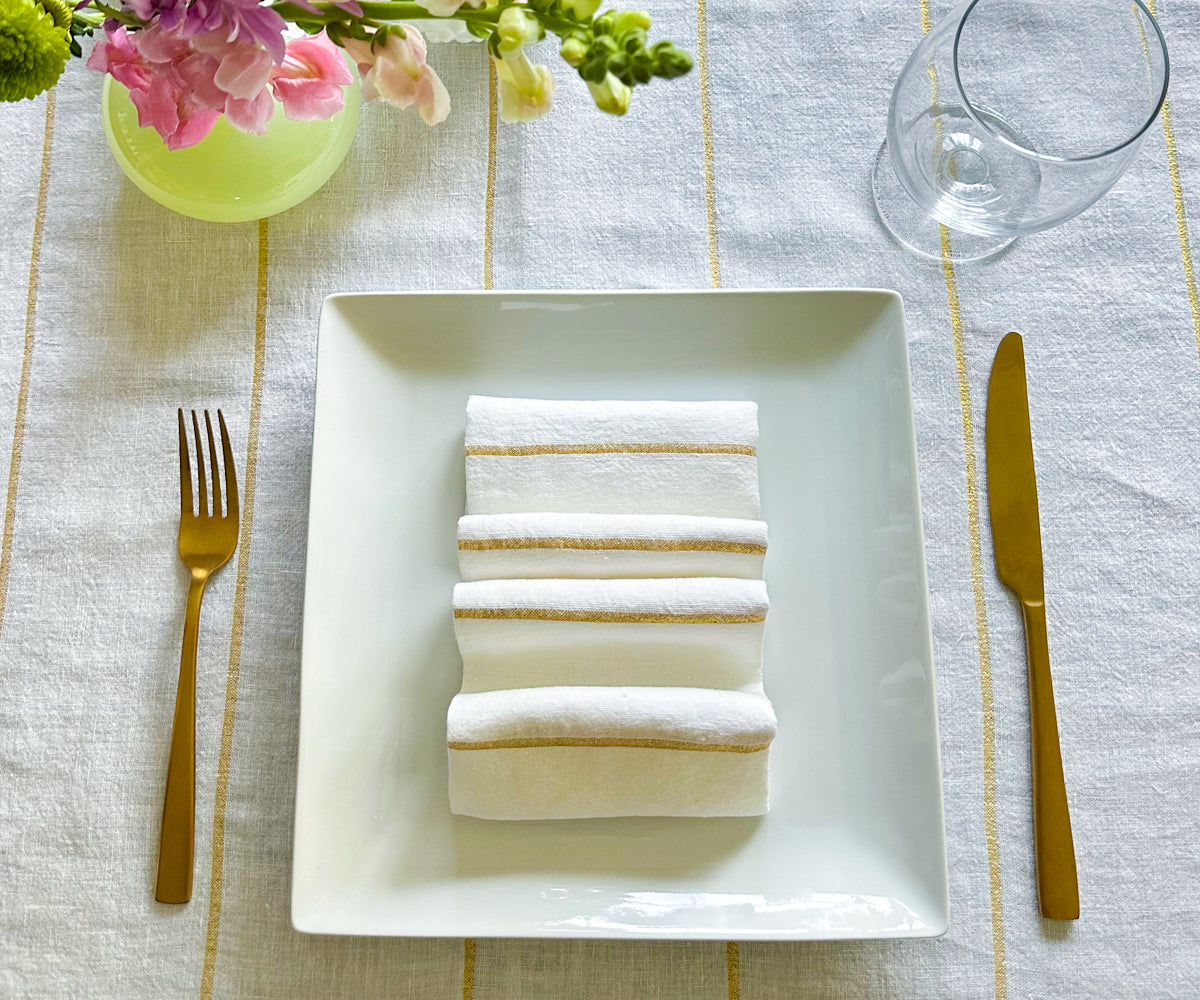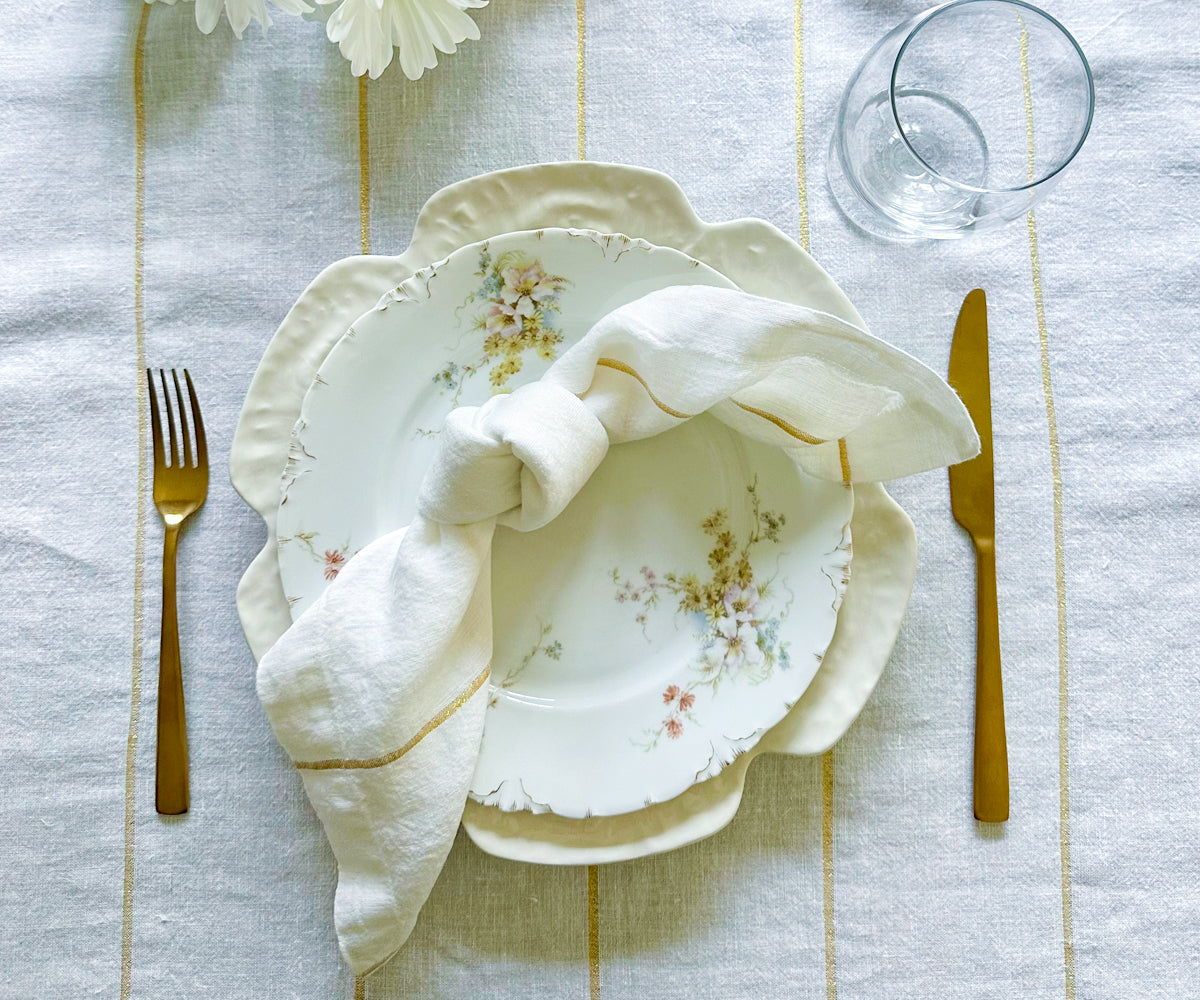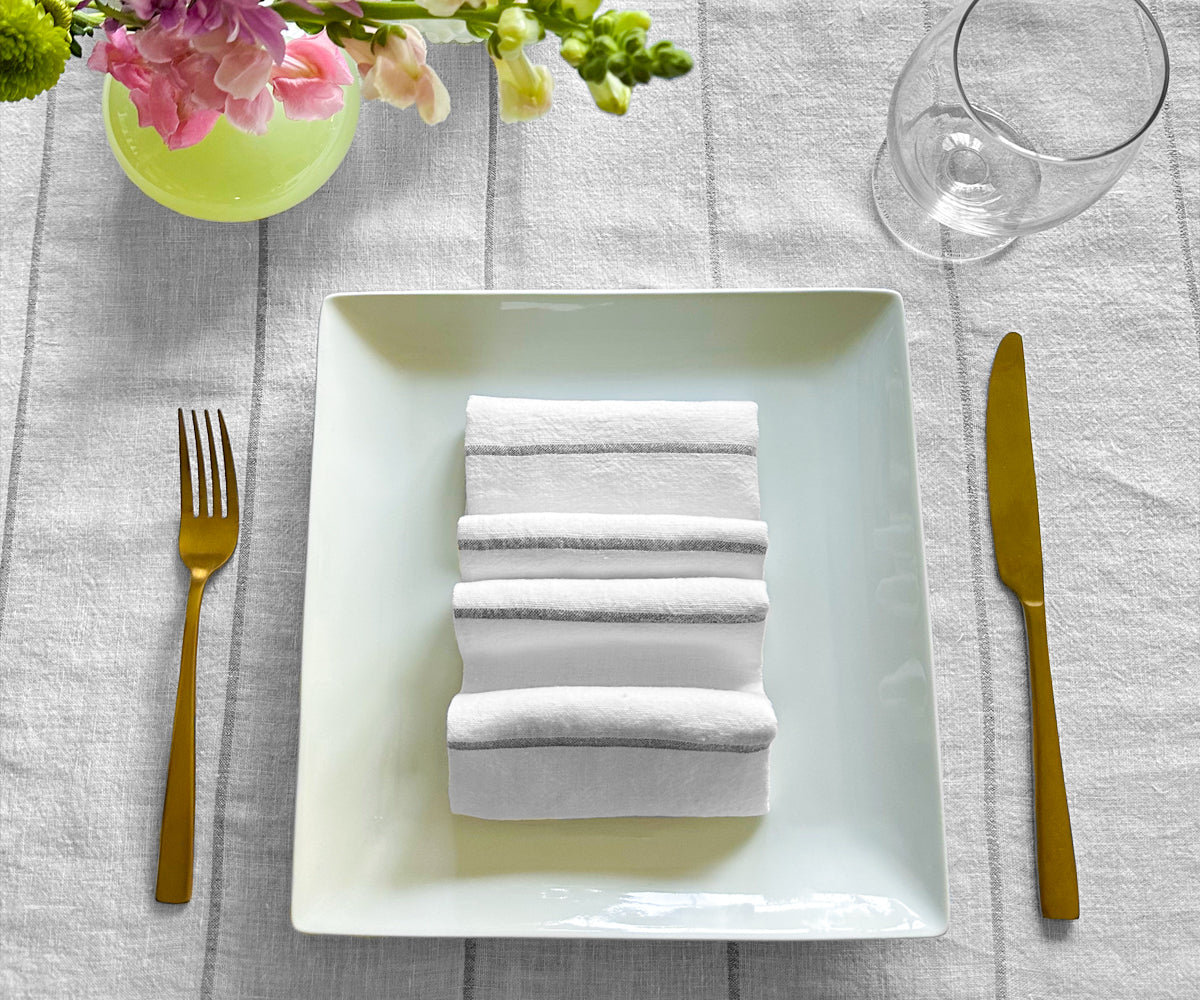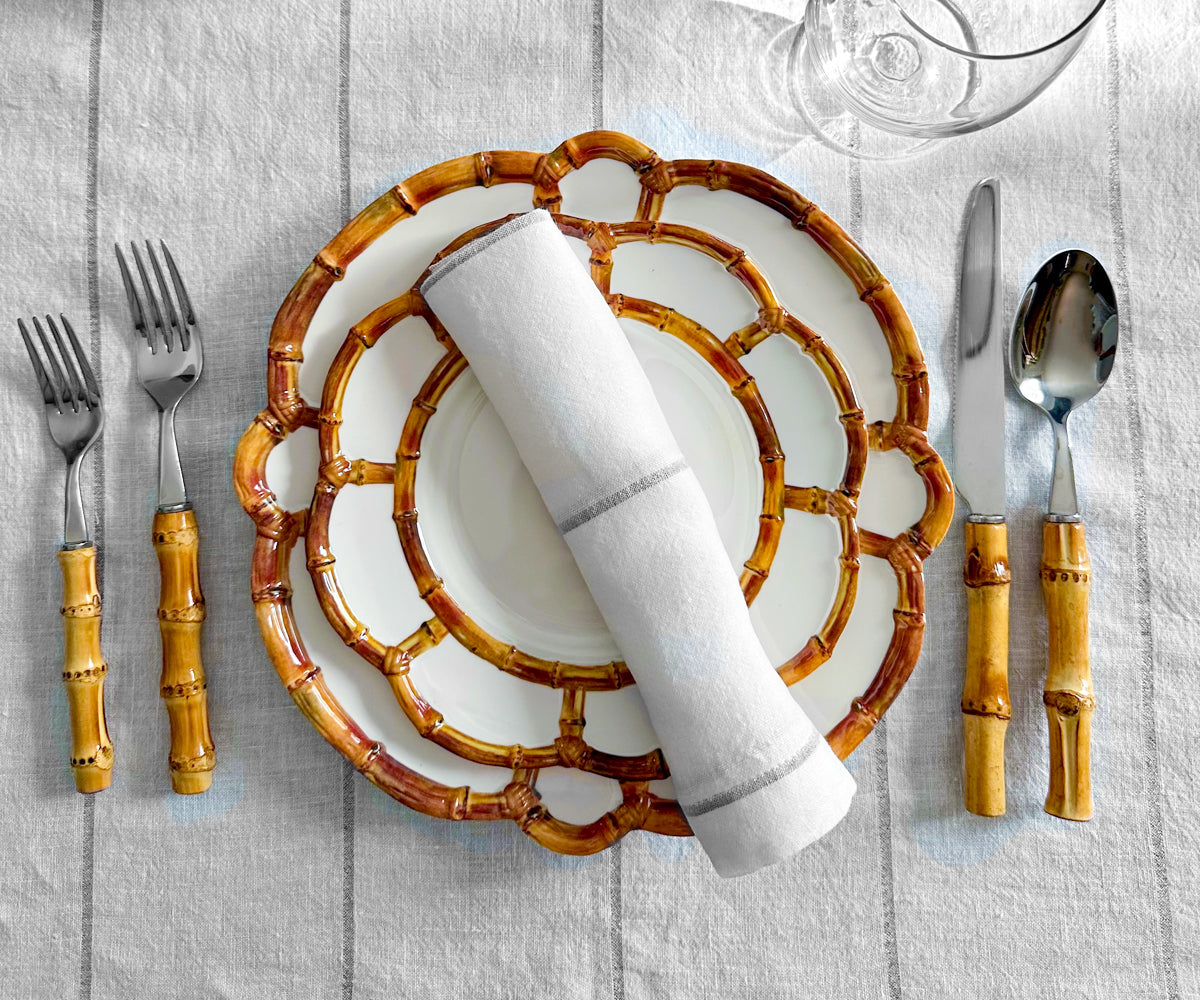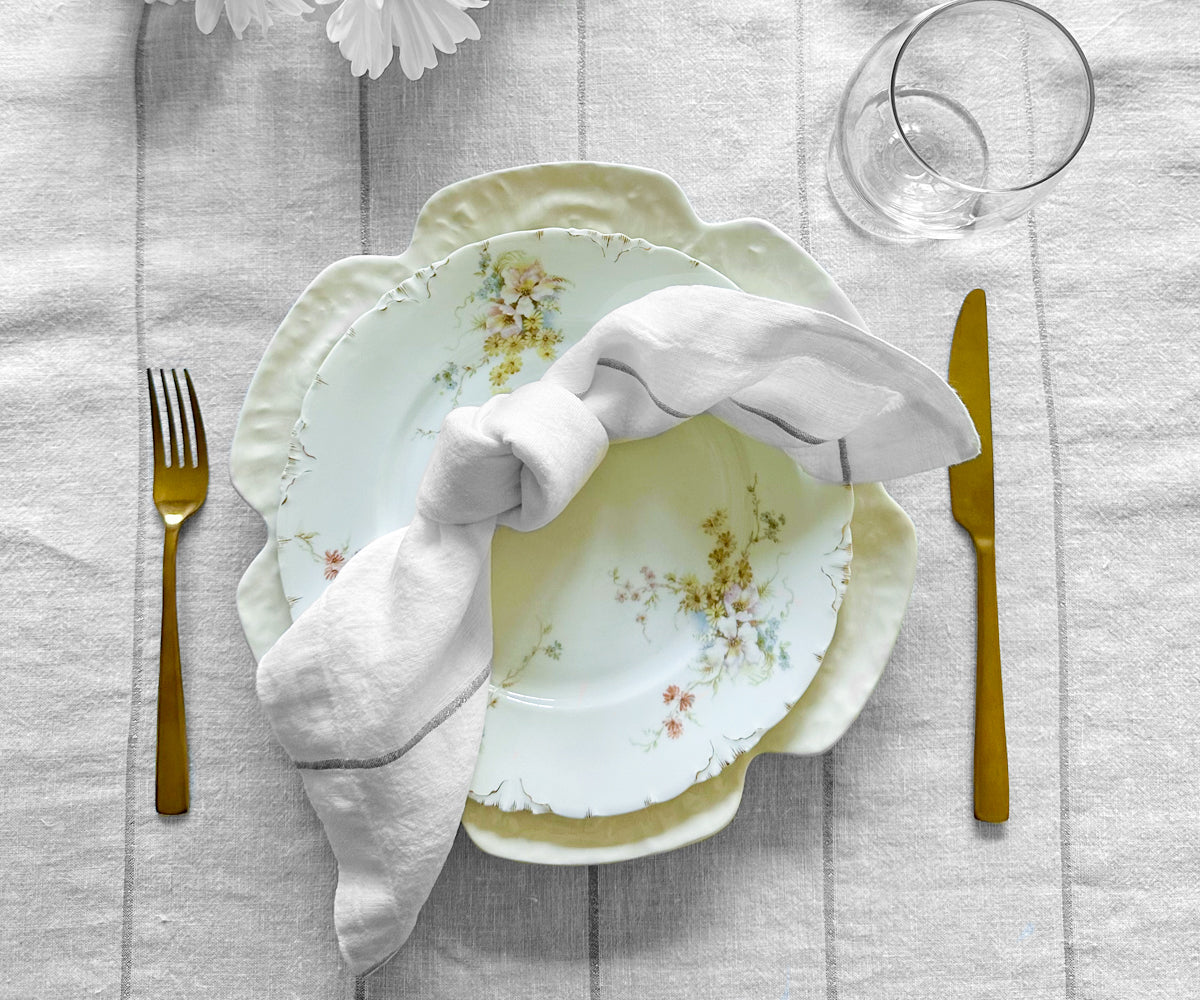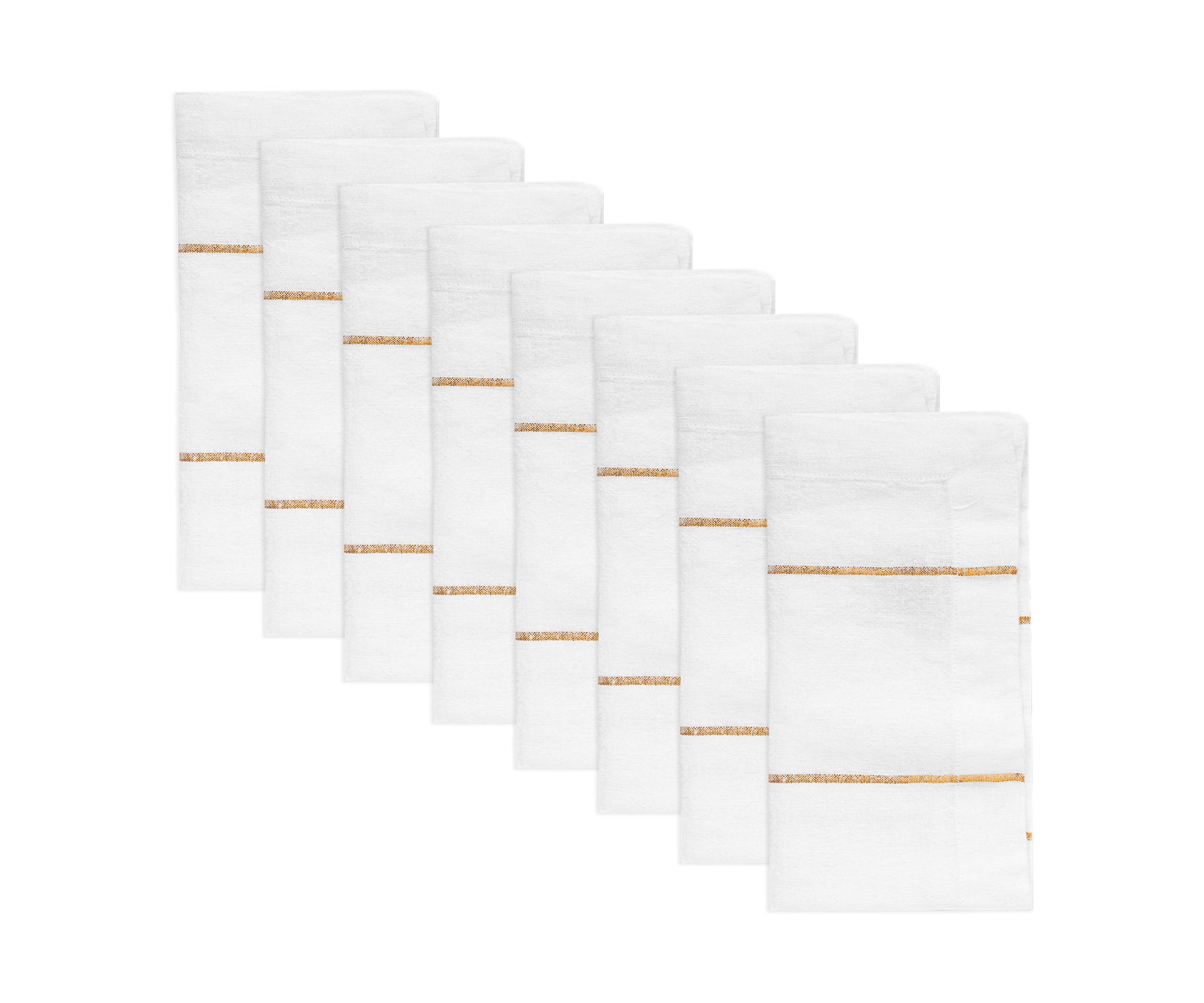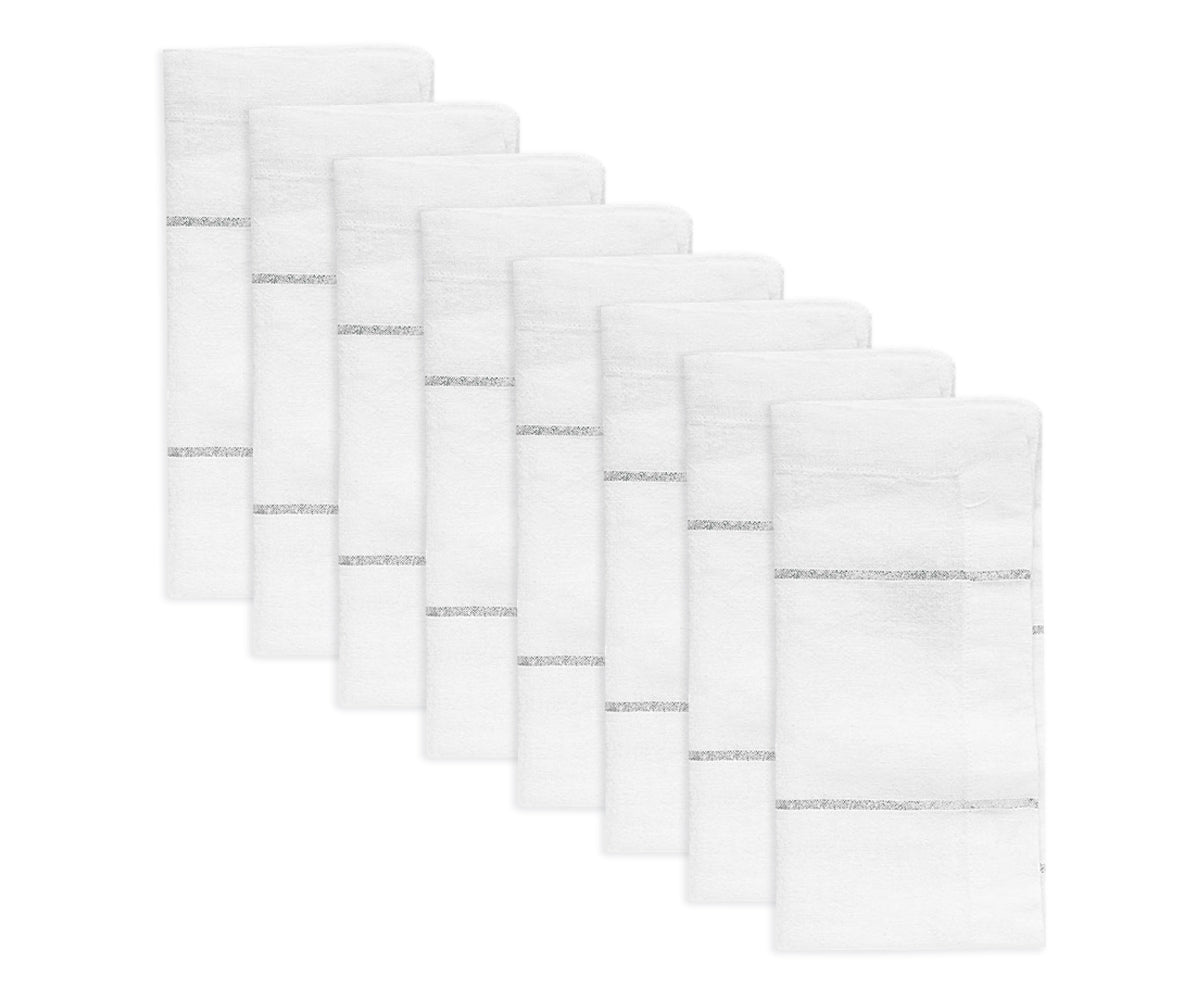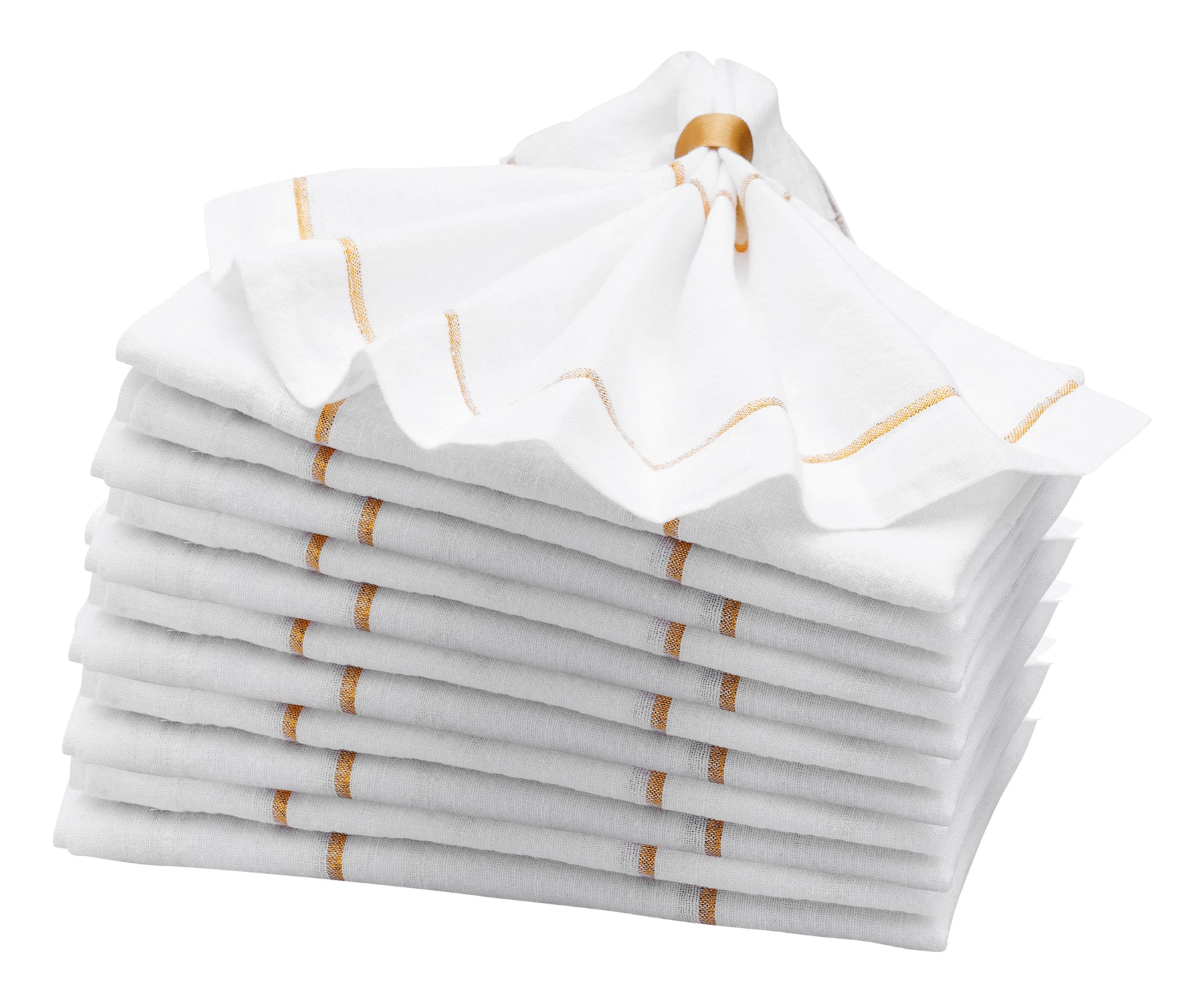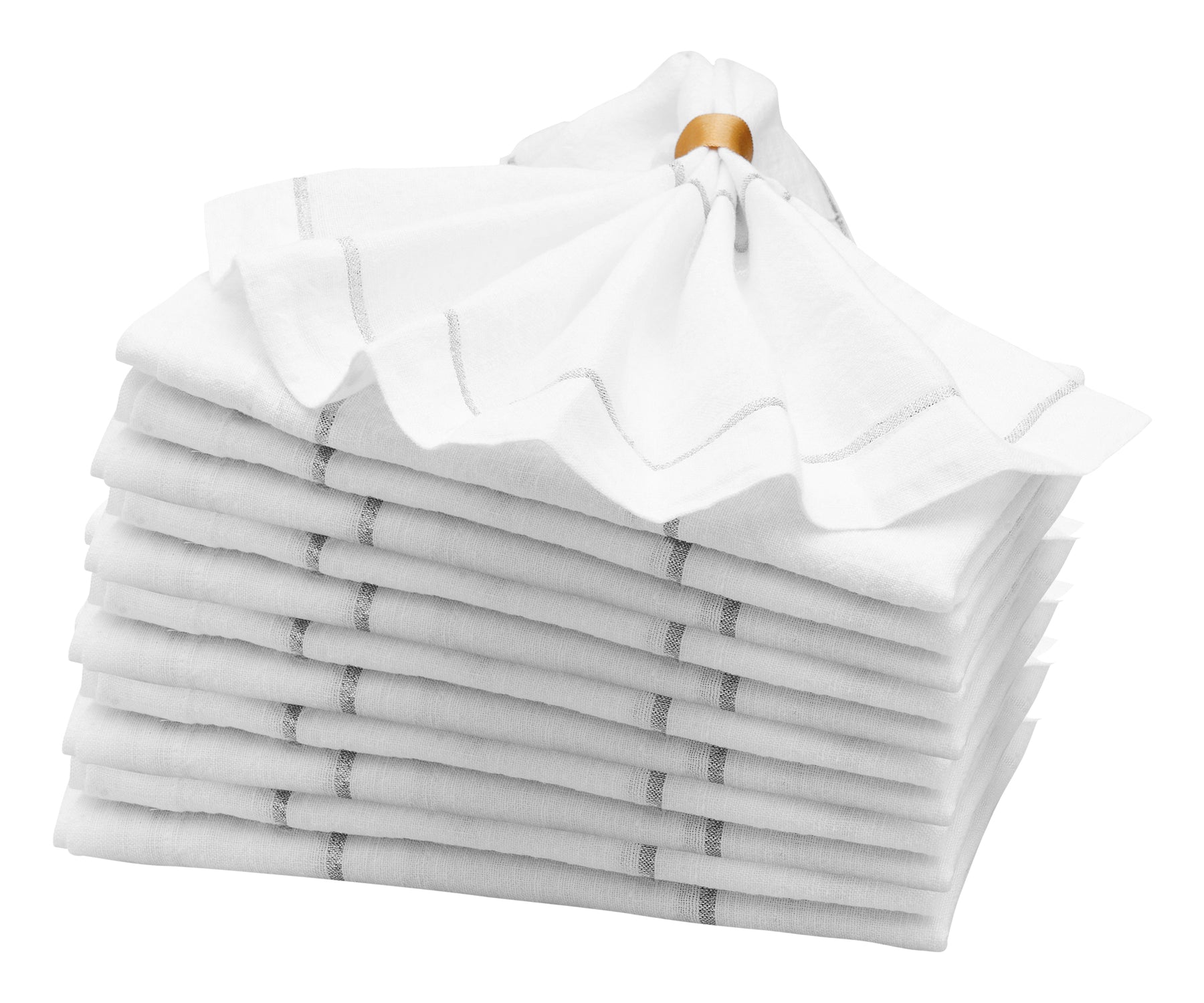We’ll walk you through how to wash and care for your linens with tips for handling different types, ensuring they remain soft, durable, and beautiful.
Why Proper Linen Care is Important
Linens are often made from natural fibers like cotton, linen, or a blend of both. These fibers are known for their softness, durability, and ability to breathe, making them a top choice for home textiles. However, because they are made from natural materials, they require a certain level of care to maintain their quality.
- Prolongs the lifespan of your linens
- Keeps colors vibrant and fabric soft
- Prevents fibers from weakening or fraying
- Maintains their absorbency and texture
Pre-Washing New Linens
Before using new linens for the first time, it's important to pre-wash them. Pre-washing helps remove any chemical finishes or dust that might have accumulated during the manufacturing process. Additionally, it helps to soften the fabric and reduce shrinkage in future washes.
Steps to Pre-Wash New Linens:
- Use cold water and a gentle detergent.
- Wash similar colors together to avoid any bleeding.
- Avoid using bleach or fabric softeners during the first wash.
- Use a gentle cycle on your washing machine to prevent damage.
This process is particularly important for kitchen towels, tablecloths, and cloth napkins as they are frequently exposed to spills and stains.
How to Wash Linens Correctly
Washing your linens properly is key to ensuring they last long and stay looking great. Different types of linens may require slight variations in their washing process, but here are some general guidelines to follow:
- Use Cold or Lukewarm Water
- Washing in cold or lukewarm water is ideal because it helps maintain the fabric's integrity while reducing the risk of shrinkage.
- Hot water may cause cotton and linen fibers to break down faster, leading to wear and tear.
- Choose a Gentle Detergent
- Opt for a mild, eco-friendly detergent that’s free of harsh chemicals.
- Avoid using bleach, as it can weaken the fabric and cause yellowing, especially with white linens.
- Don’t Overload the Washing Machine
- Overloading your machine can result in linens not getting properly cleaned.
- Give them room to move freely, especially when washing large items like tablecloths or bed sheets.
- Avoid Fabric Softeners
- Fabric softeners can coat the fibers, reducing their absorbency and natural softness.
- If you want softer linens, adding white vinegar to the rinse cycle works well without leaving a strong odor.
Removing Stains from Linens
Stains are inevitable, especially on items like kitchen towels and cloth napkins. However, removing them quickly and effectively can prevent permanent damage to your linens. Here’s how to tackle common stains:
- Grease and Oil Stains
- Sprinkle cornstarch or baking soda on the stain to absorb excess oil.
- Rinse the stain with cold water, then apply dish soap directly to it before washing.
- Wine and Coffee Stains
- Blot the stain with a clean cloth to remove excess liquid.
- Rinse with cold water, then soak in a mixture of water and white vinegar.
- Wash with a gentle detergent.
- Food and Sauce Stains
- Scrape off any food residue, then rinse the area with cold water.
- Apply a stain remover and allow it to sit for 10 minutes before washing.
For stubborn stains on your table linens, napkins, or kitchen towels, pre-treating the fabric and avoiding heat until the stain is fully removed is crucial. Heat can set the stain, making it harder to remove.
How to Dry Your Linens
Drying your linens properly is just as important as washing them. Improper drying can lead to shrinkage, wrinkles, or even damage to the fabric.
- Air Dry Whenever Possible
- Line drying or air drying is the best option for linens. It helps preserve the fabric and prevent shrinkage.
- If drying outside, avoid direct sunlight, as it can fade colors.
- Use a Low Heat Setting
- If you’re using a dryer, choose a low-heat or no-heat tumble setting to prevent the fabric from shrinking or becoming rough.
- Over-drying can lead to stiff or scratchy linens, so it’s best to remove them while they’re still slightly damp.
- Avoid Using Dryer Sheets
- Like fabric softeners, dryer sheets can leave a residue on your linens, affecting their absorbency.
- Instead, use dryer balls or even a few clean tennis balls to soften your linens naturally in the dryer.
Ironing and Storing Linens
Once your linens are clean and dry, proper storage will help keep them looking their best for years. Here’s how to iron and store linens the right way:
- Iron While Damp
- For a crisp look, iron linens while they are still slightly damp. This helps smooth out wrinkles and gives them a professional finish.
- For thicker fabrics like tablecloths, using a steam iron will make the process easier.
- Use a Pressing Cloth
- If you’re ironing delicate or embroidered linens, use a pressing cloth between the iron and the fabric to avoid damaging the fibers or the design.
- Store Linens in a Cool, Dry Place
- Store your linens in a cool, dry place, away from direct sunlight to prevent fading and damage.
- Avoid using plastic storage bags, as they can trap moisture and lead to mildew. Instead, opt for cotton storage bags or a clean, dry linen closet.
Tips for Long-Term Linen Care
Following a regular care routine will keep your linens in top shape. Here are a few long-term linen care tips:
- Rotate frequently: Rotate your linens to ensure even wear. For example, alternate between two sets of tablecloths or kitchen towels to prevent one from wearing out too quickly.
- Hand wash delicate linens: For delicate or antique linens, hand washing in cold water is the safest option to prevent damage.
- Avoid harsh chemicals: Steer clear of bleach or any harsh chemicals that can weaken the natural fibers and cause discoloration.
Buying Linens from All Cotton and Linen
If you're looking for high-quality linens, All Cotton and Linen offers a variety of eco-friendly products. Their selection includes:
- Kitchen Towels: Ideal for everyday use, absorbent and durable.
- Table Linens: Beautiful options to enhance your dining experience.
- Cloth Napkins: Reusable and perfect for formal dinners or casual meals.
- Tablecloths: Available in various sizes and designs to suit any occasion.
Shopping at All Cotton and Linen ensures you get sustainable, high-quality products that are perfect for your home.
Washing and caring for your linens doesn’t have to be complicated. By following these simple guidelines, you can maintain the softness, appearance, and durability of your linens for years to come. Whether it’s your everyday kitchen towels, luxurious tablecloths, or delicate cloth napkins, proper care will help them last longer and continue to look their best. So, the next time you use your linens, you can do so knowing they’re clean, fresh, and well cared for!


